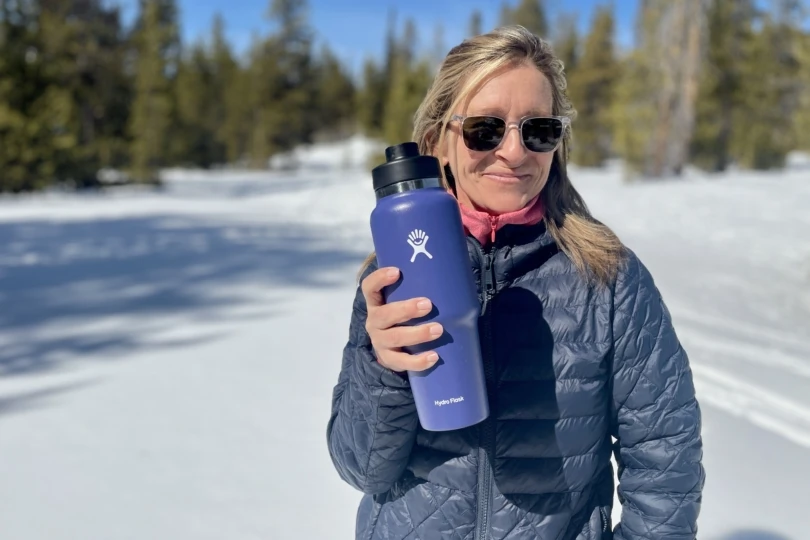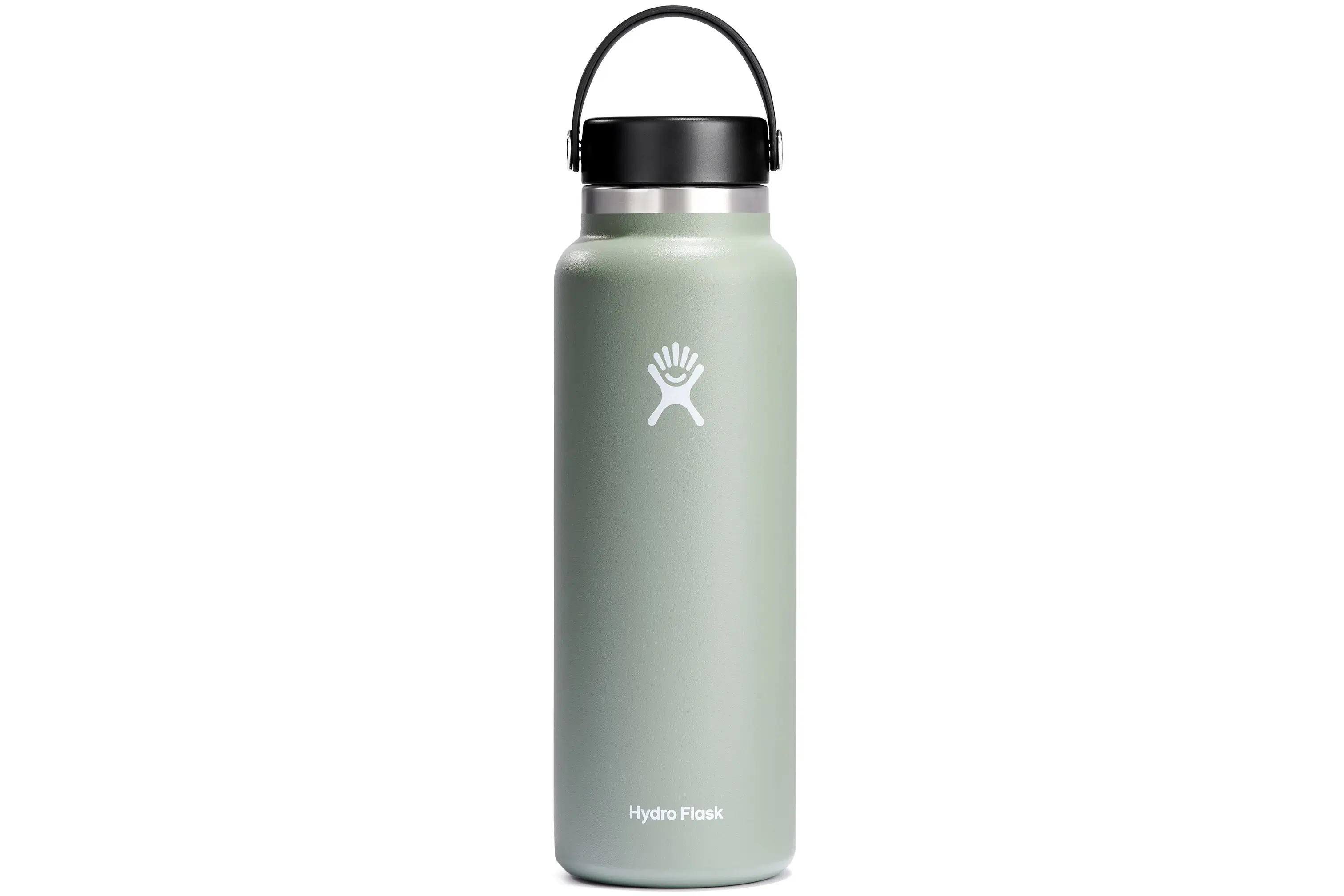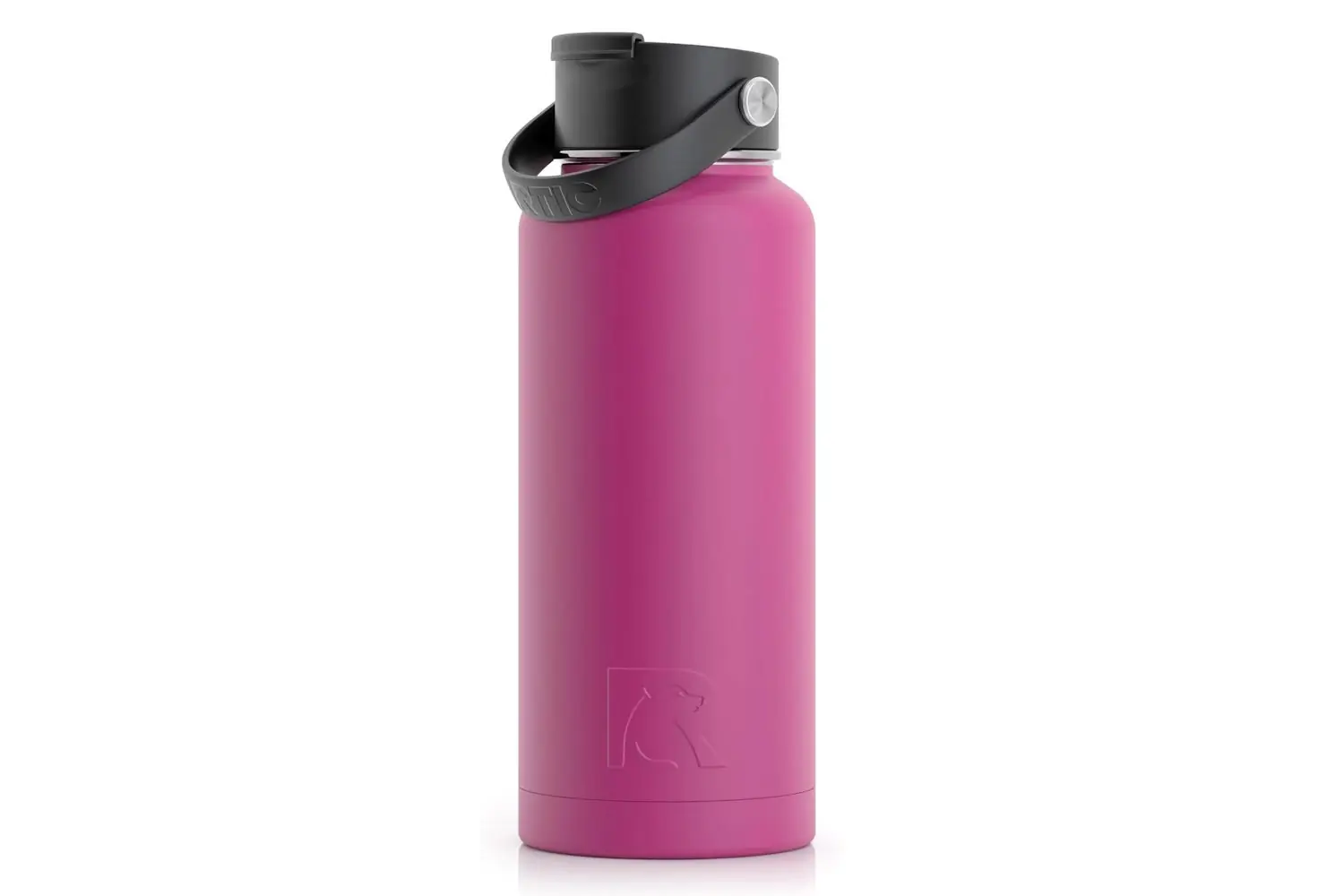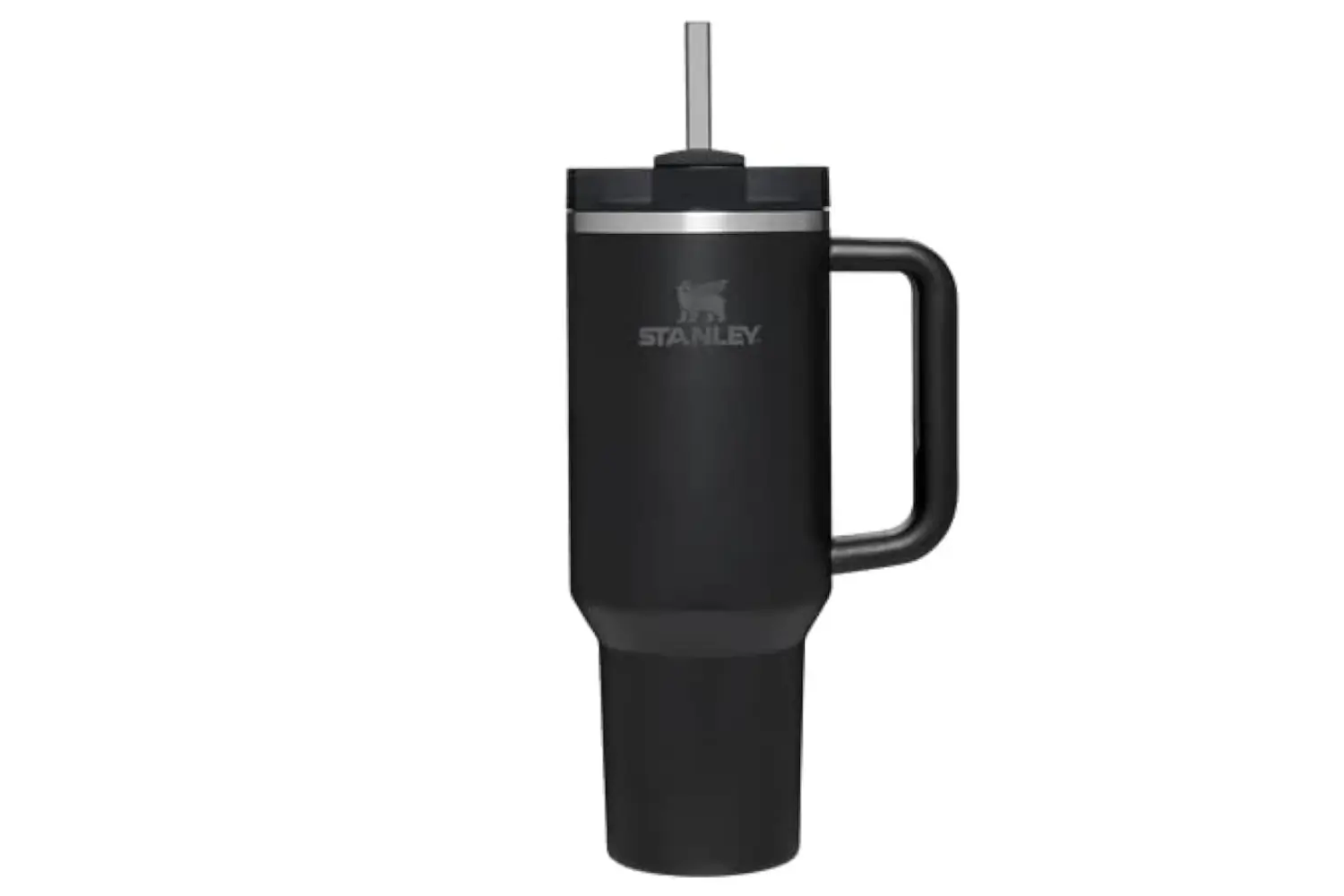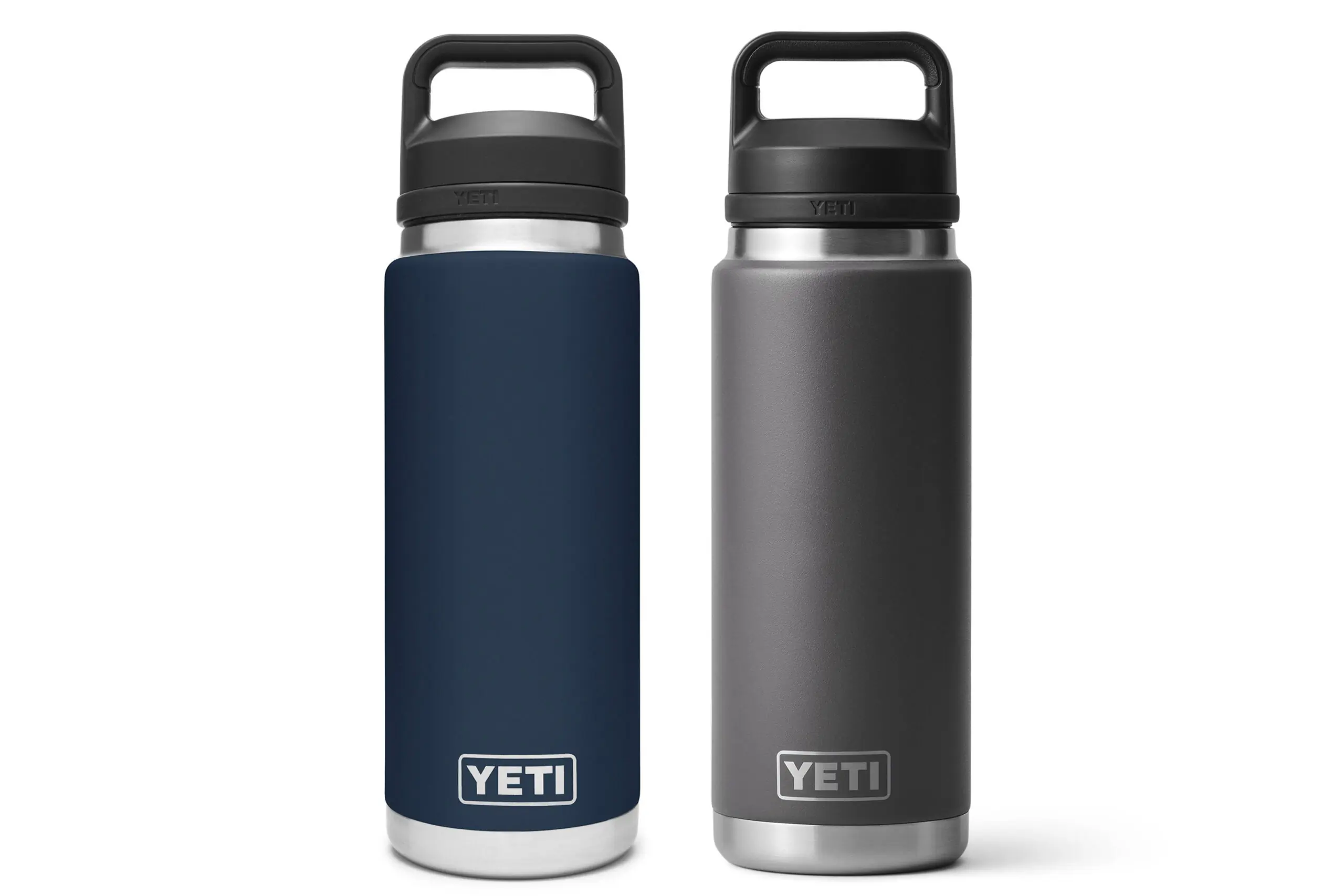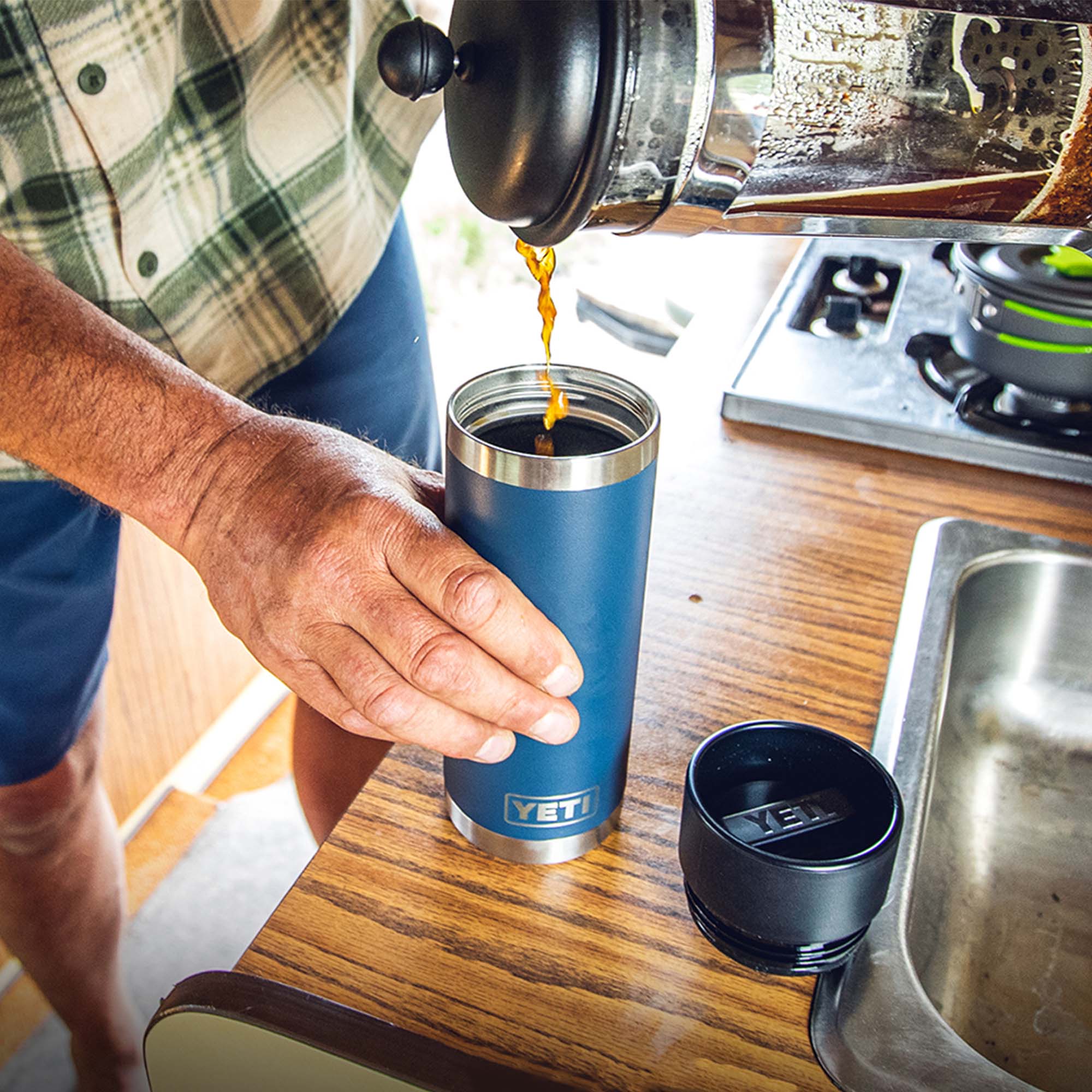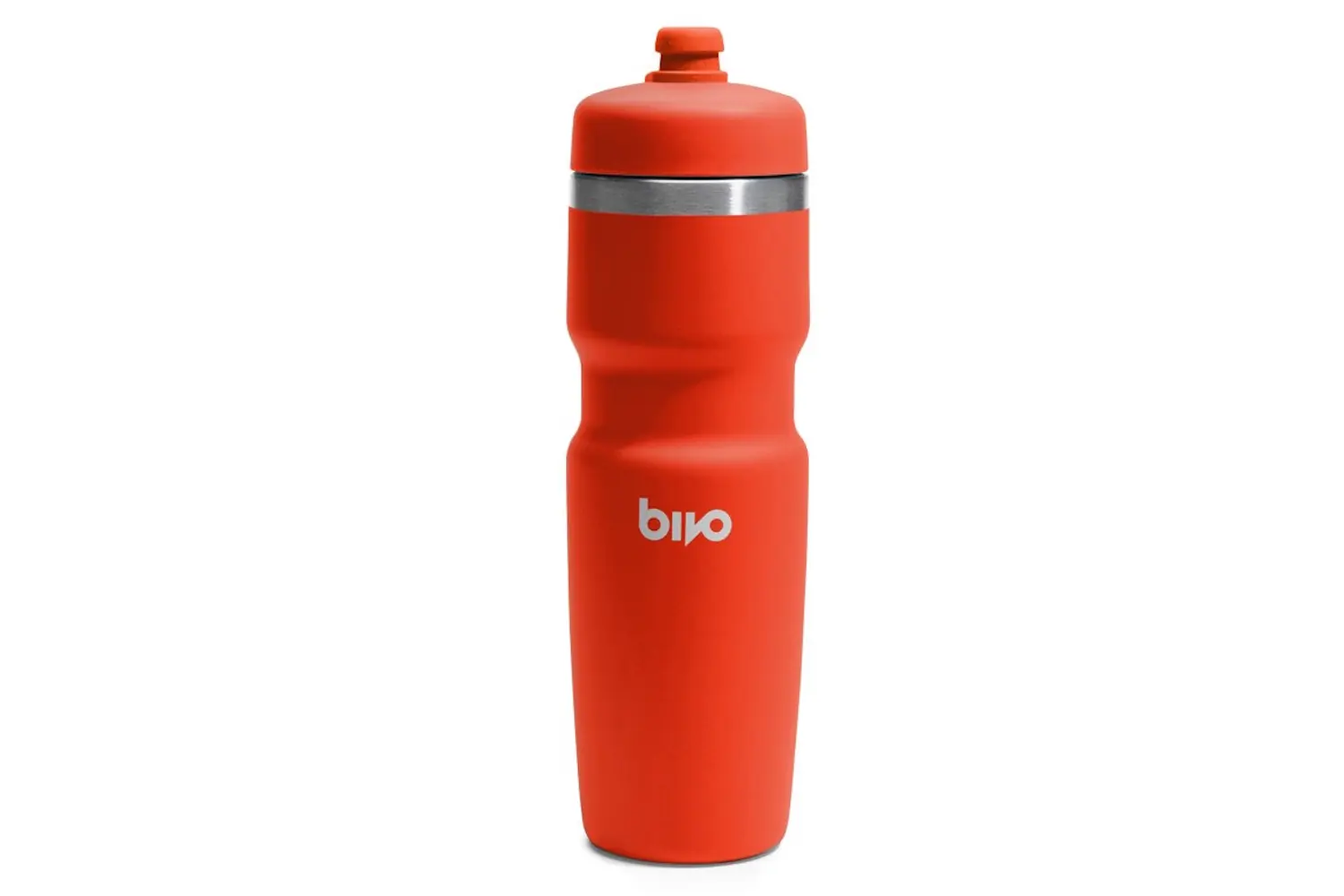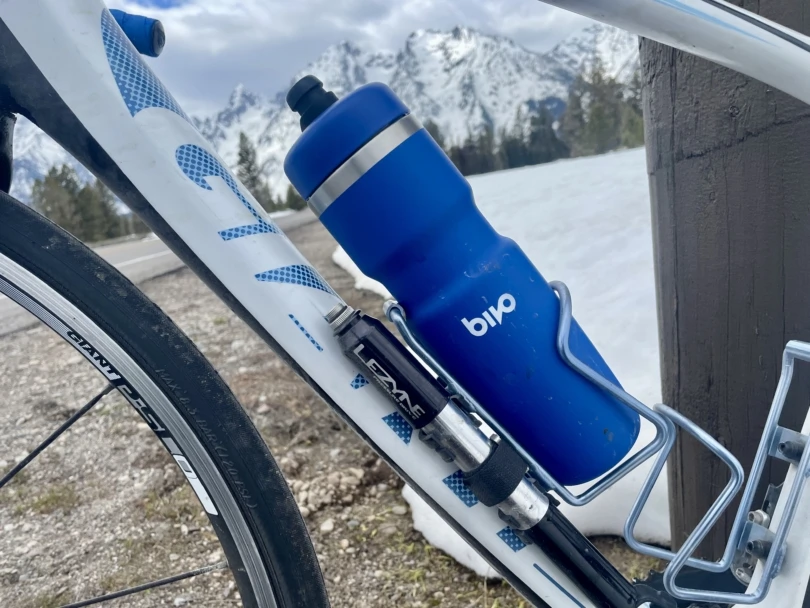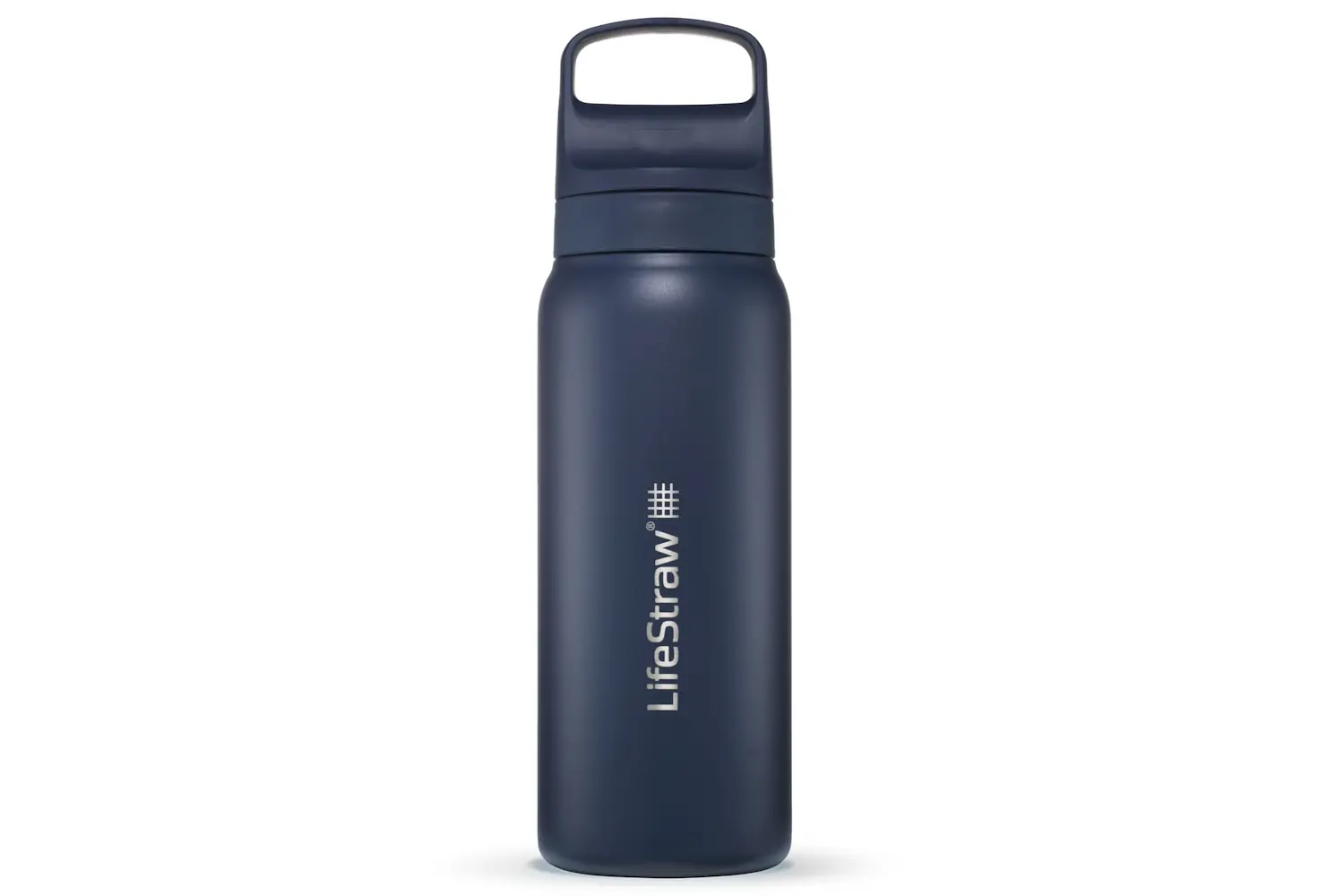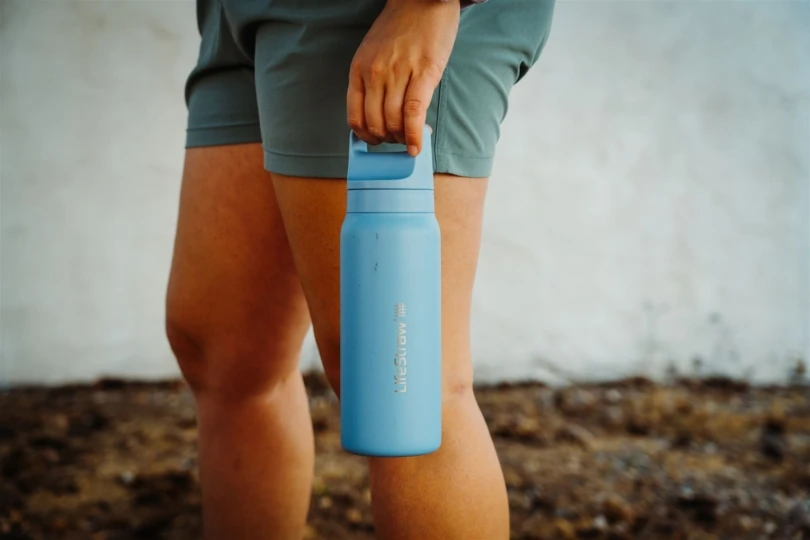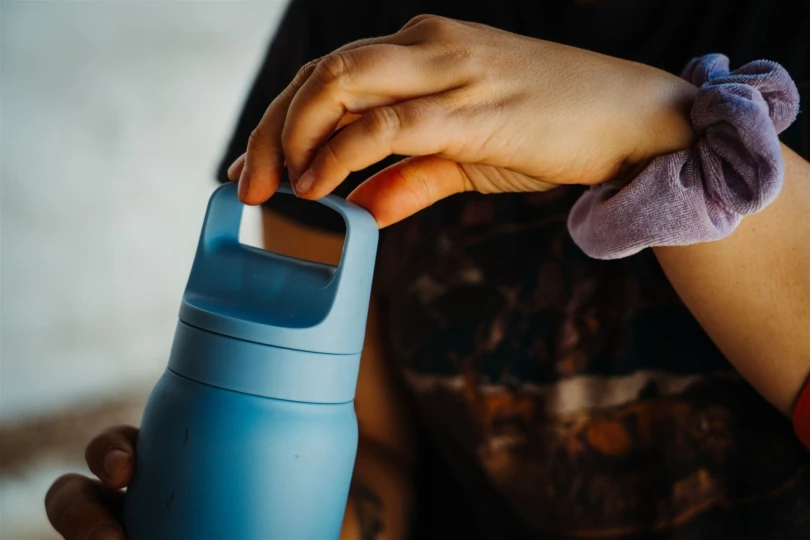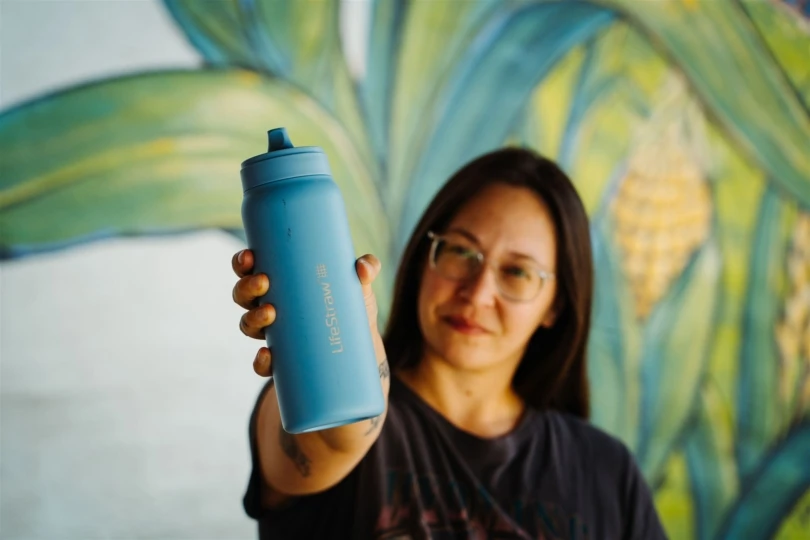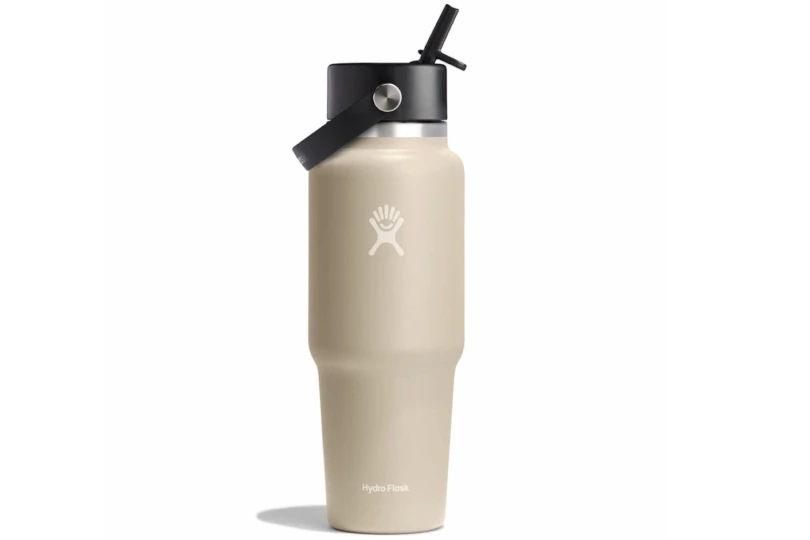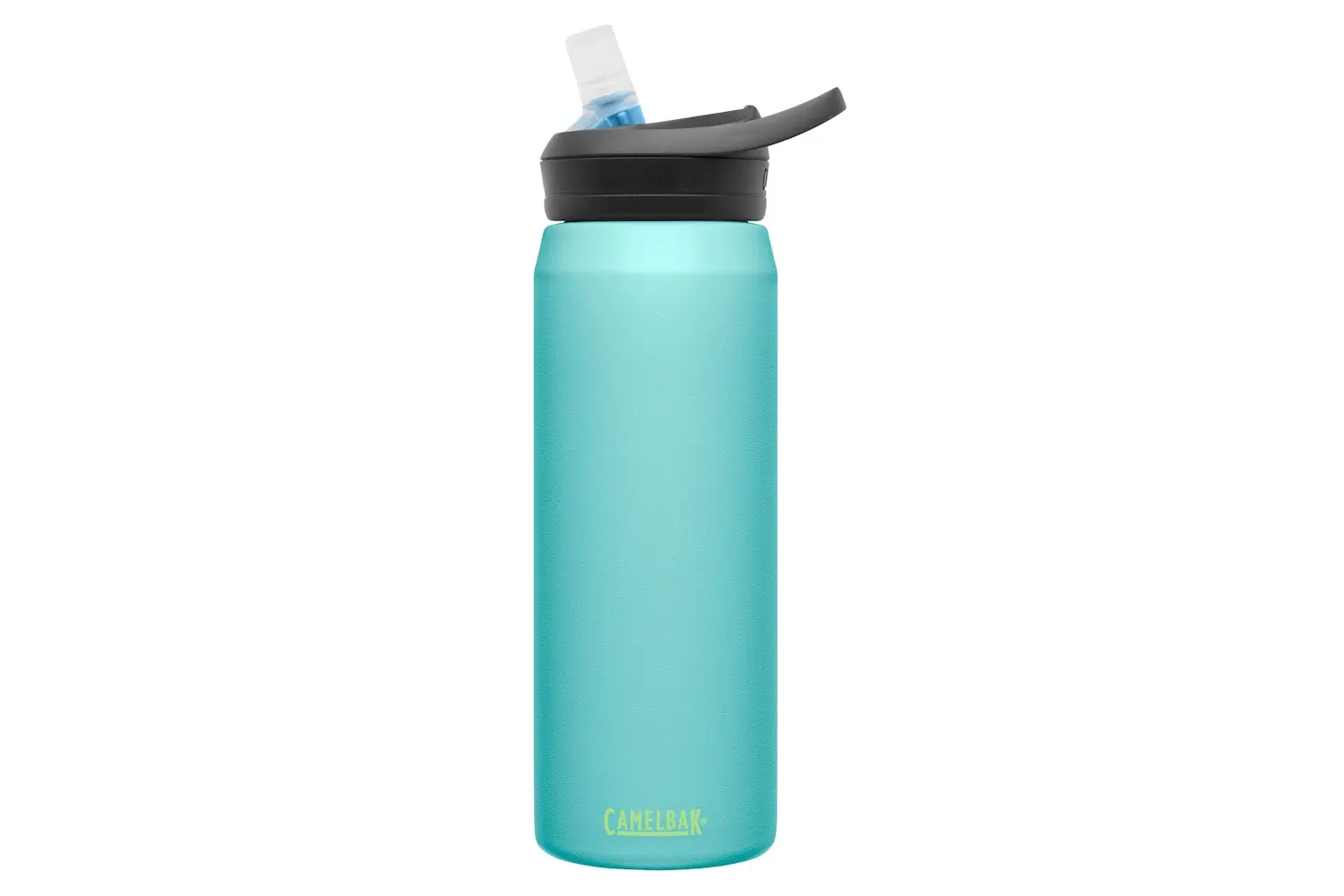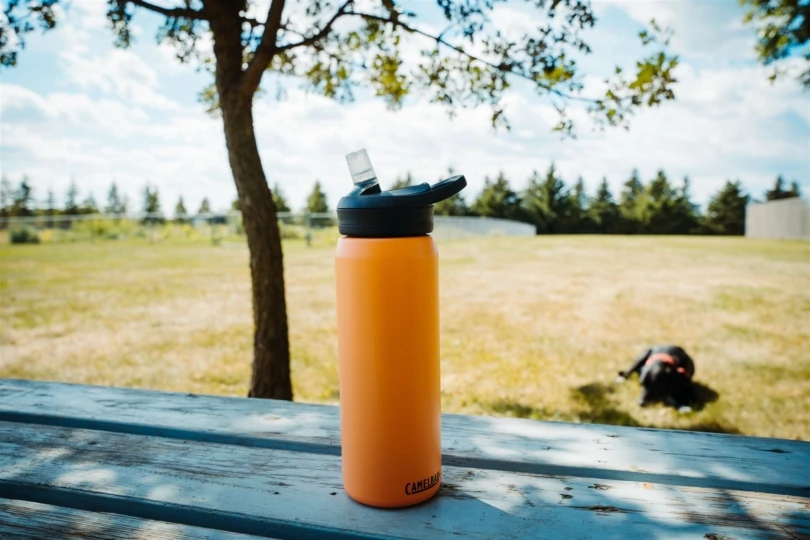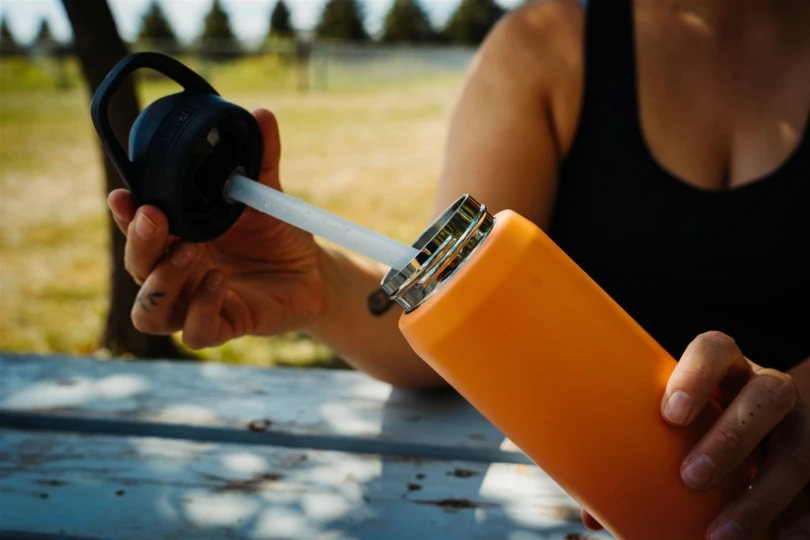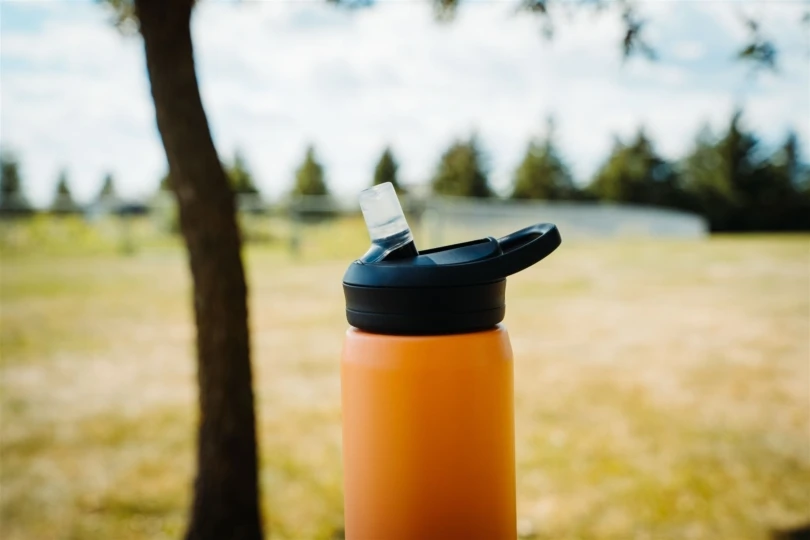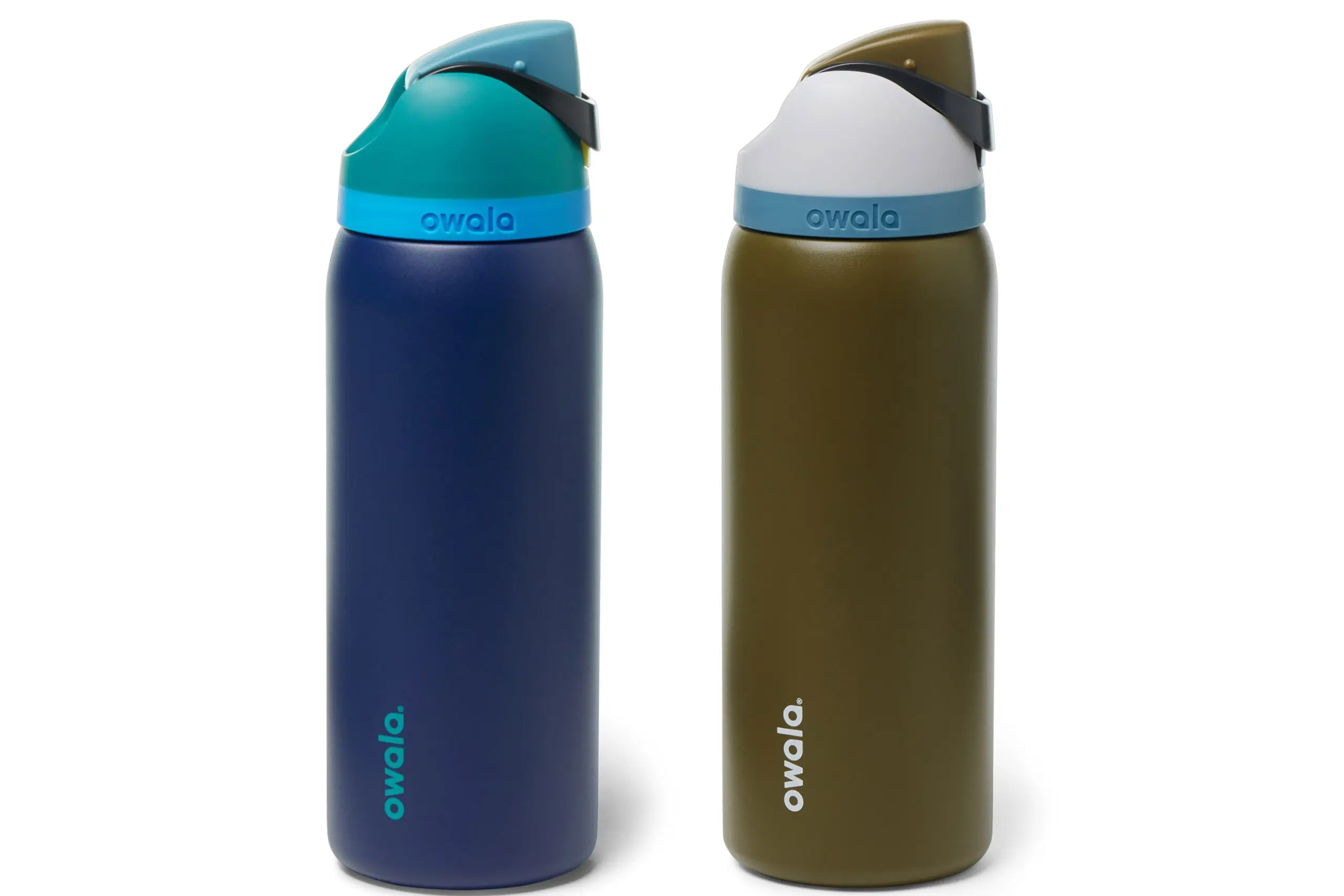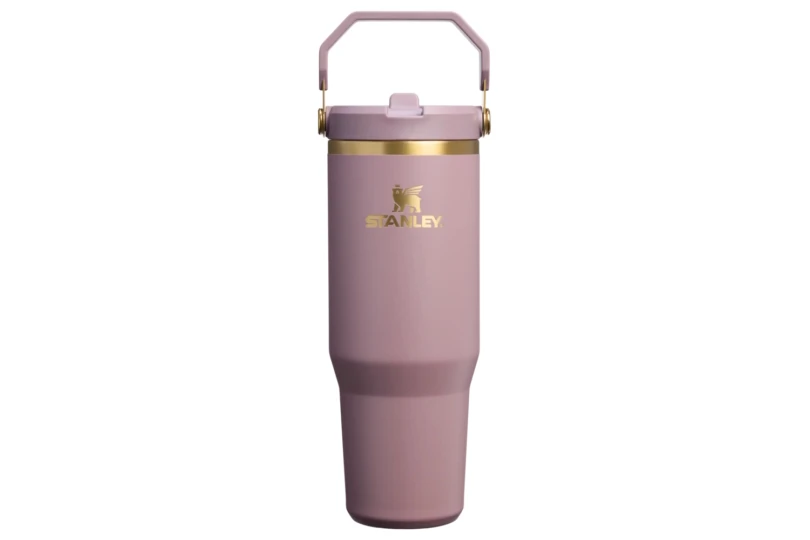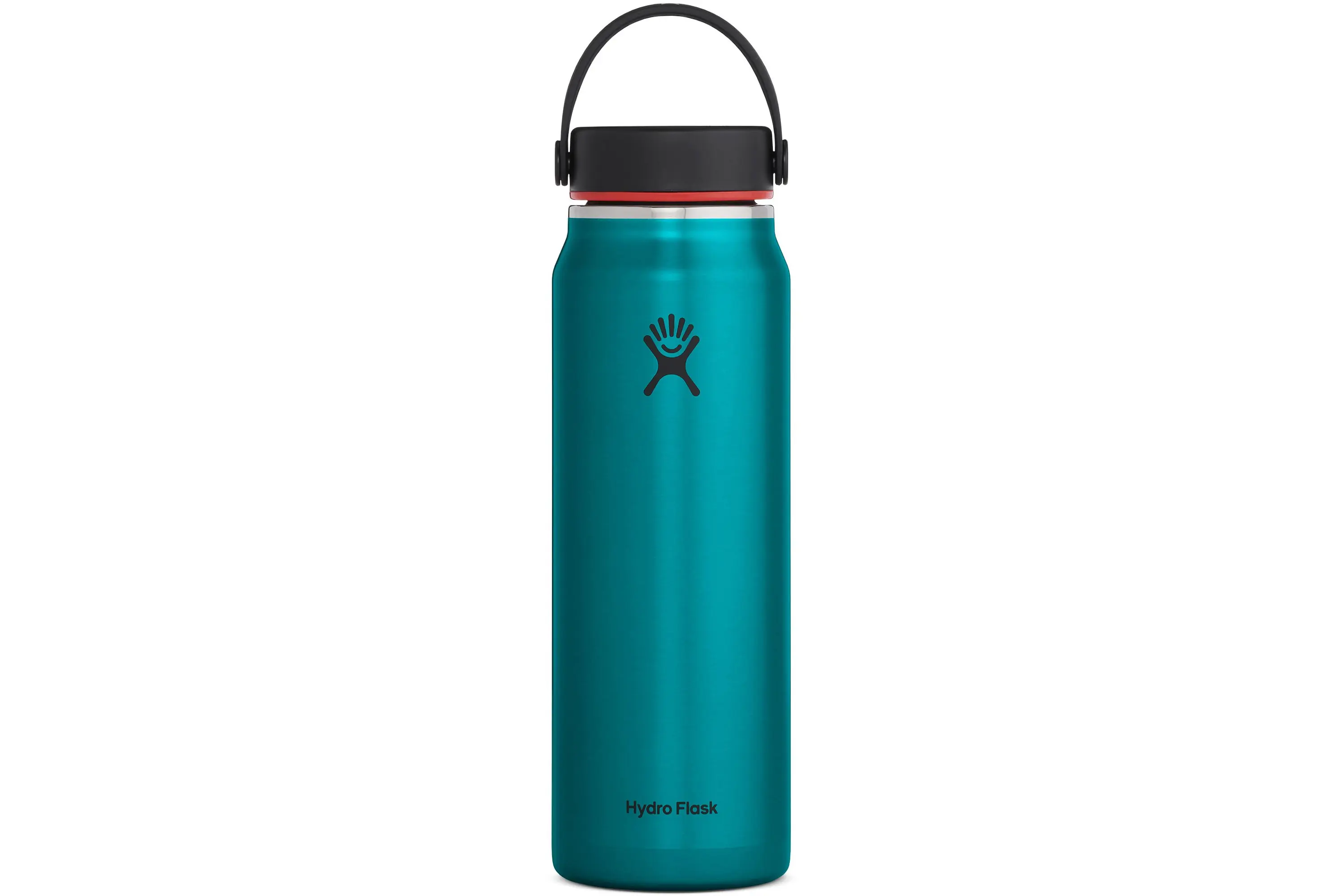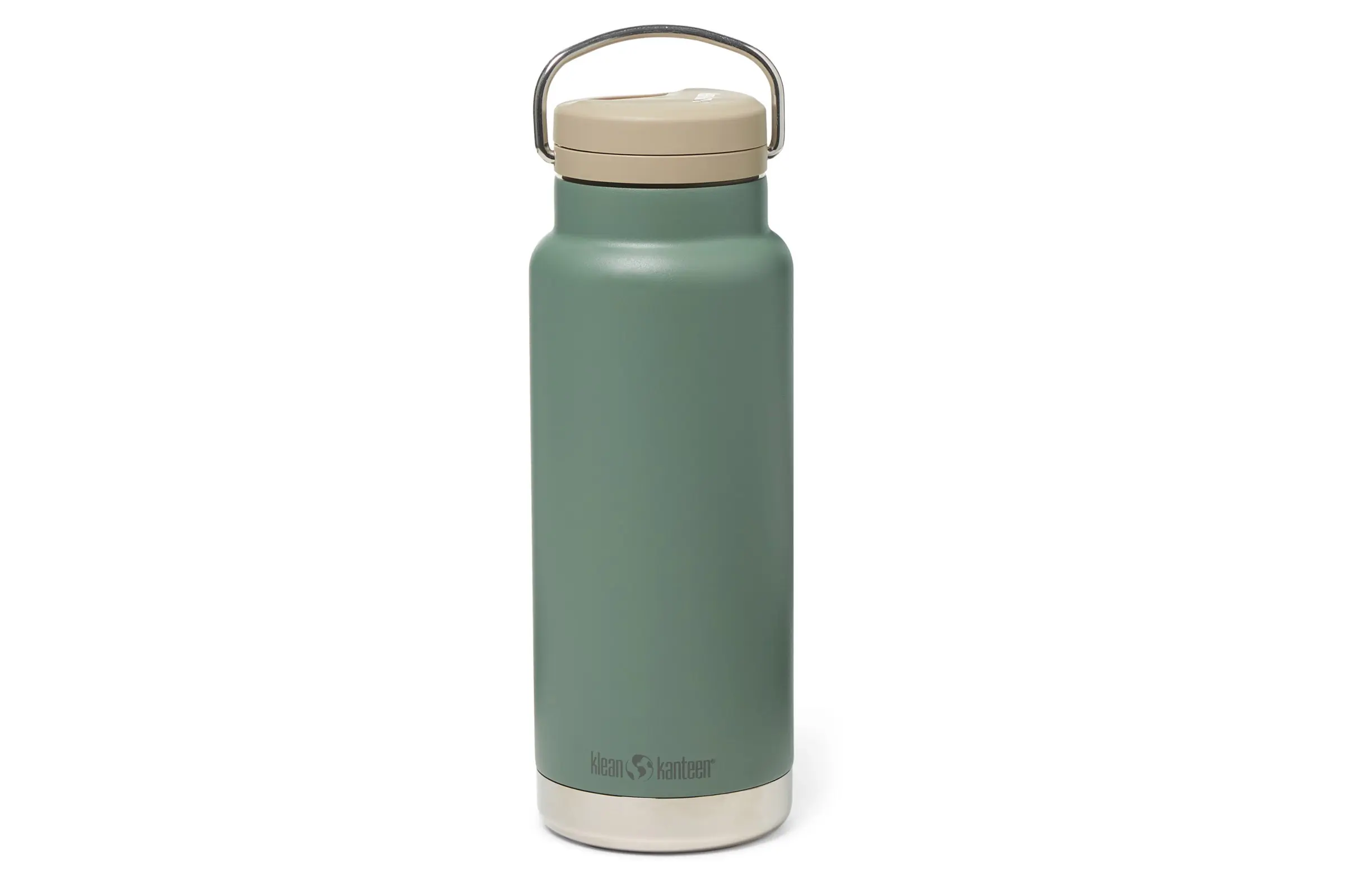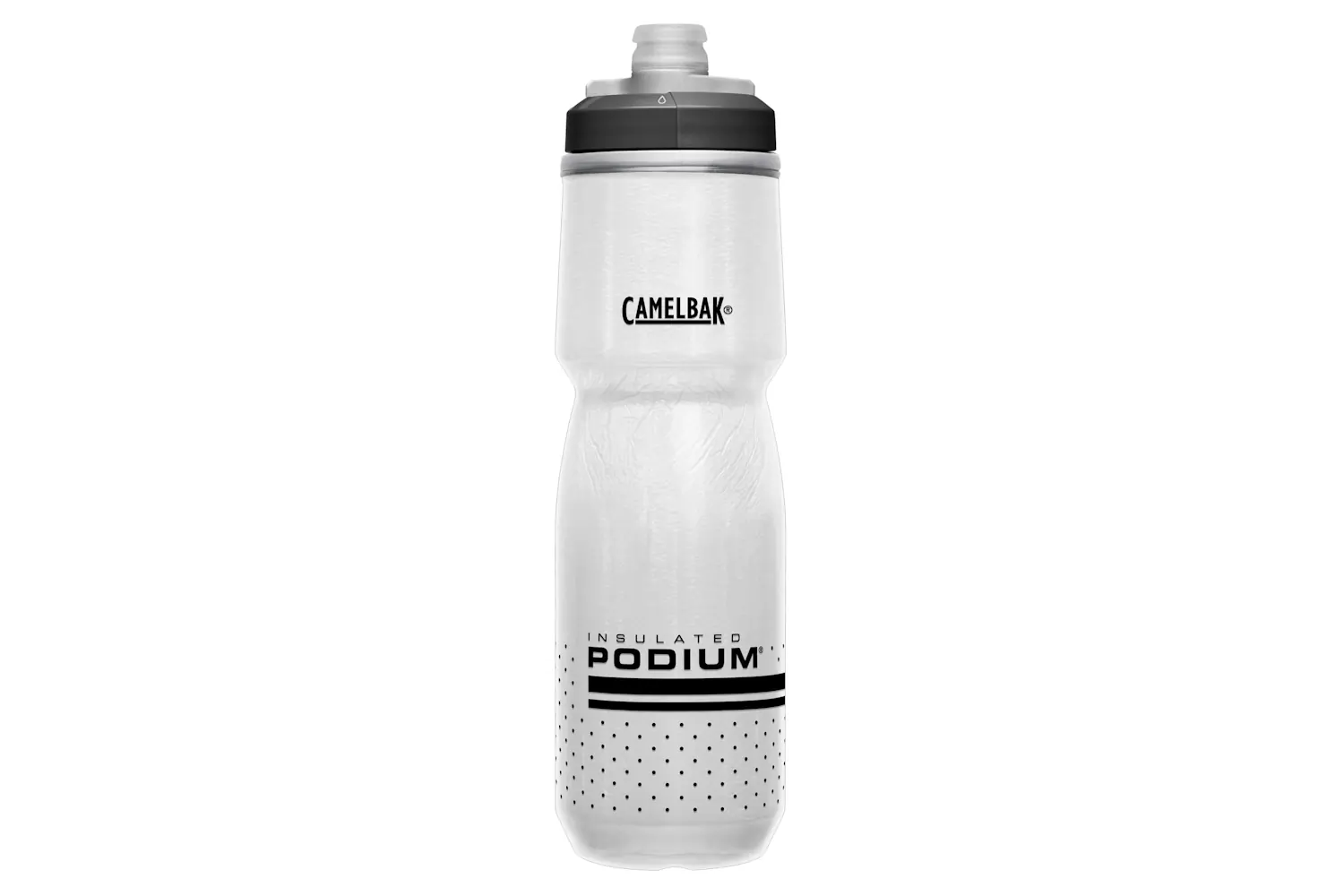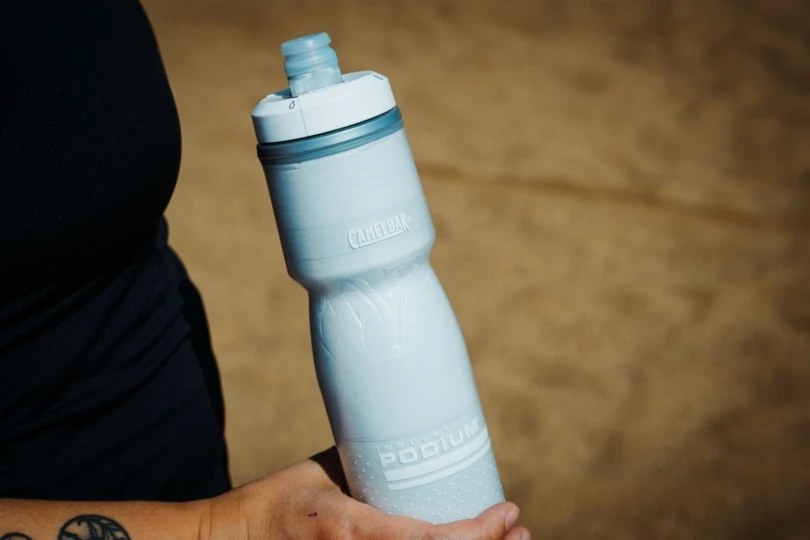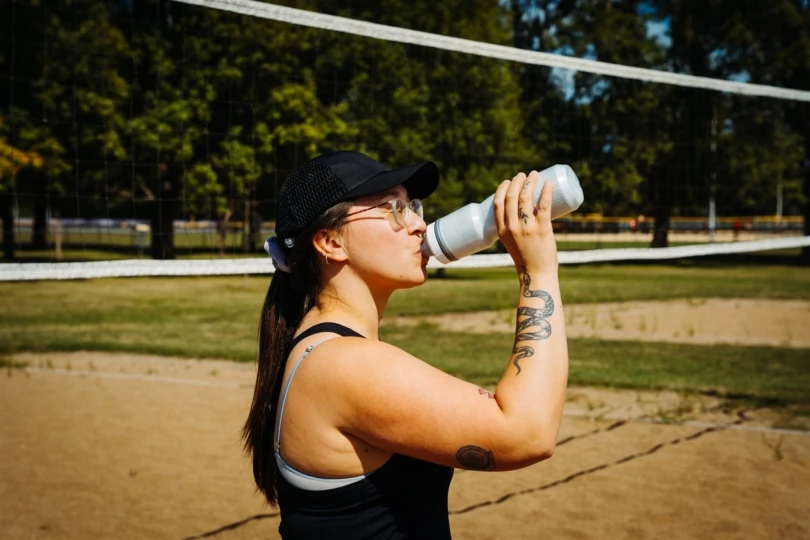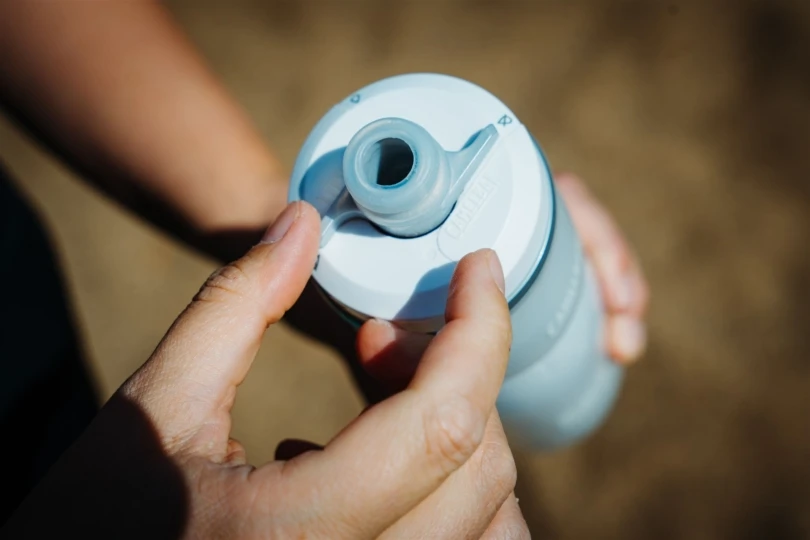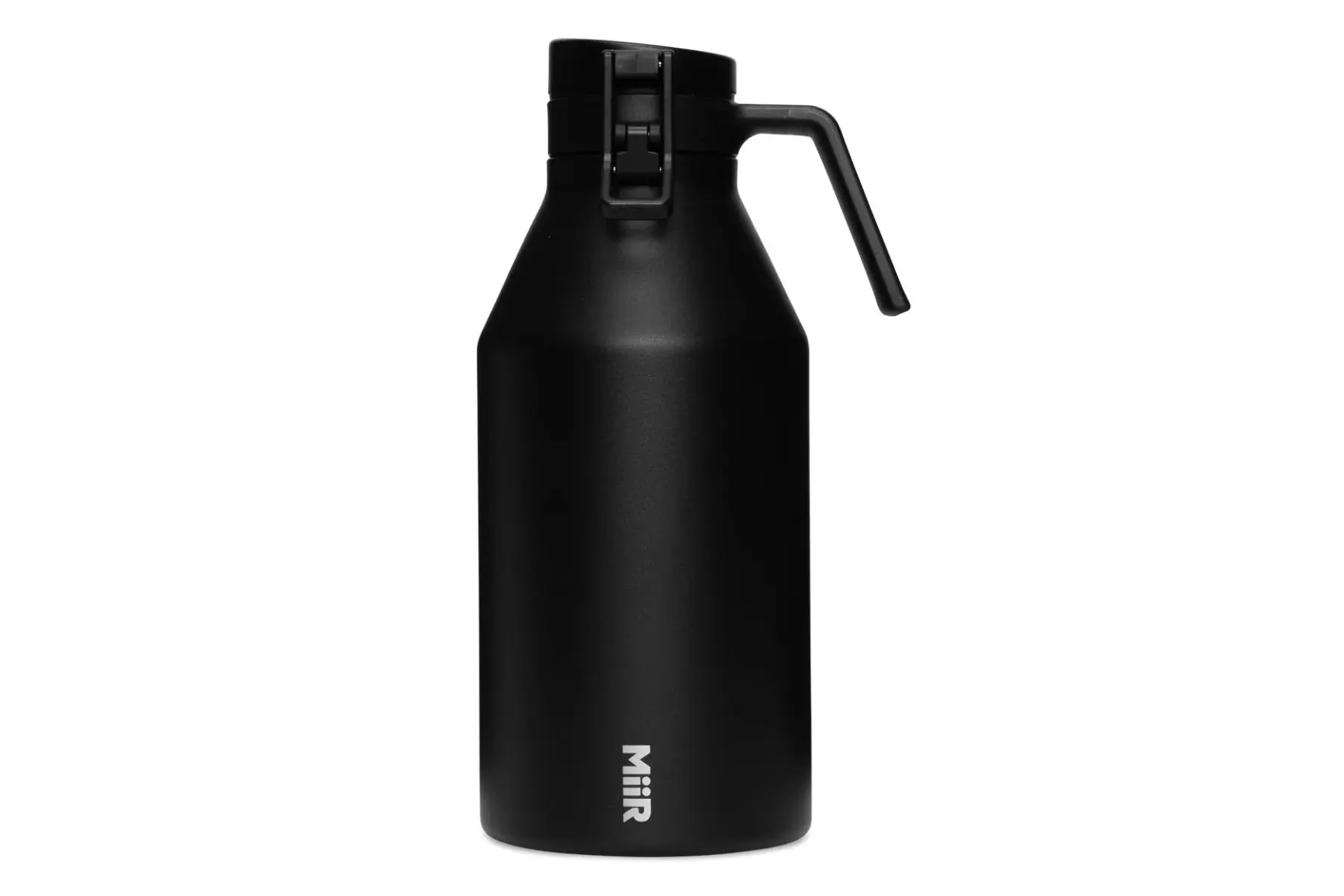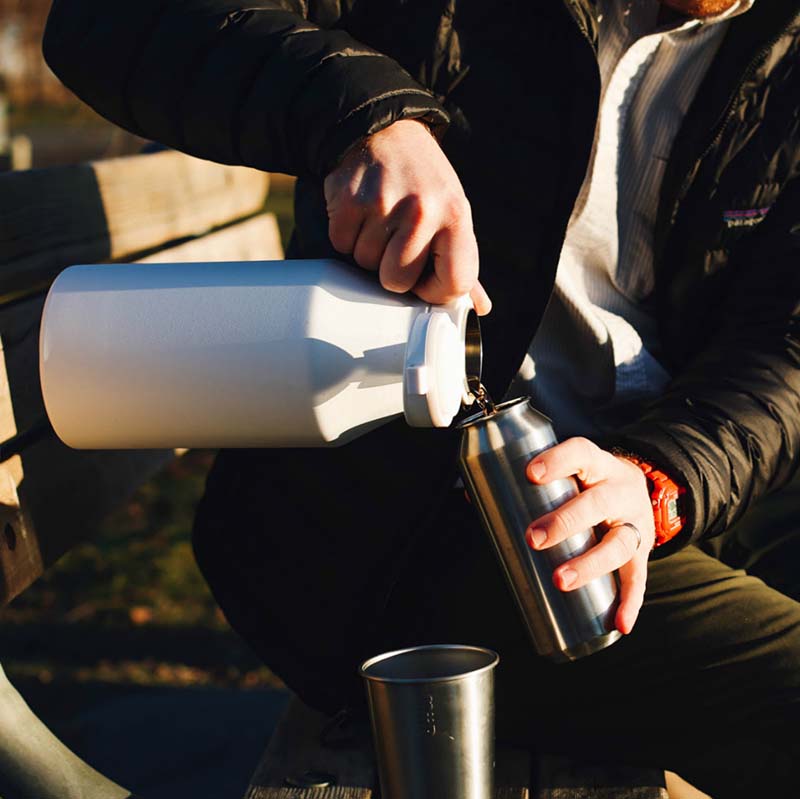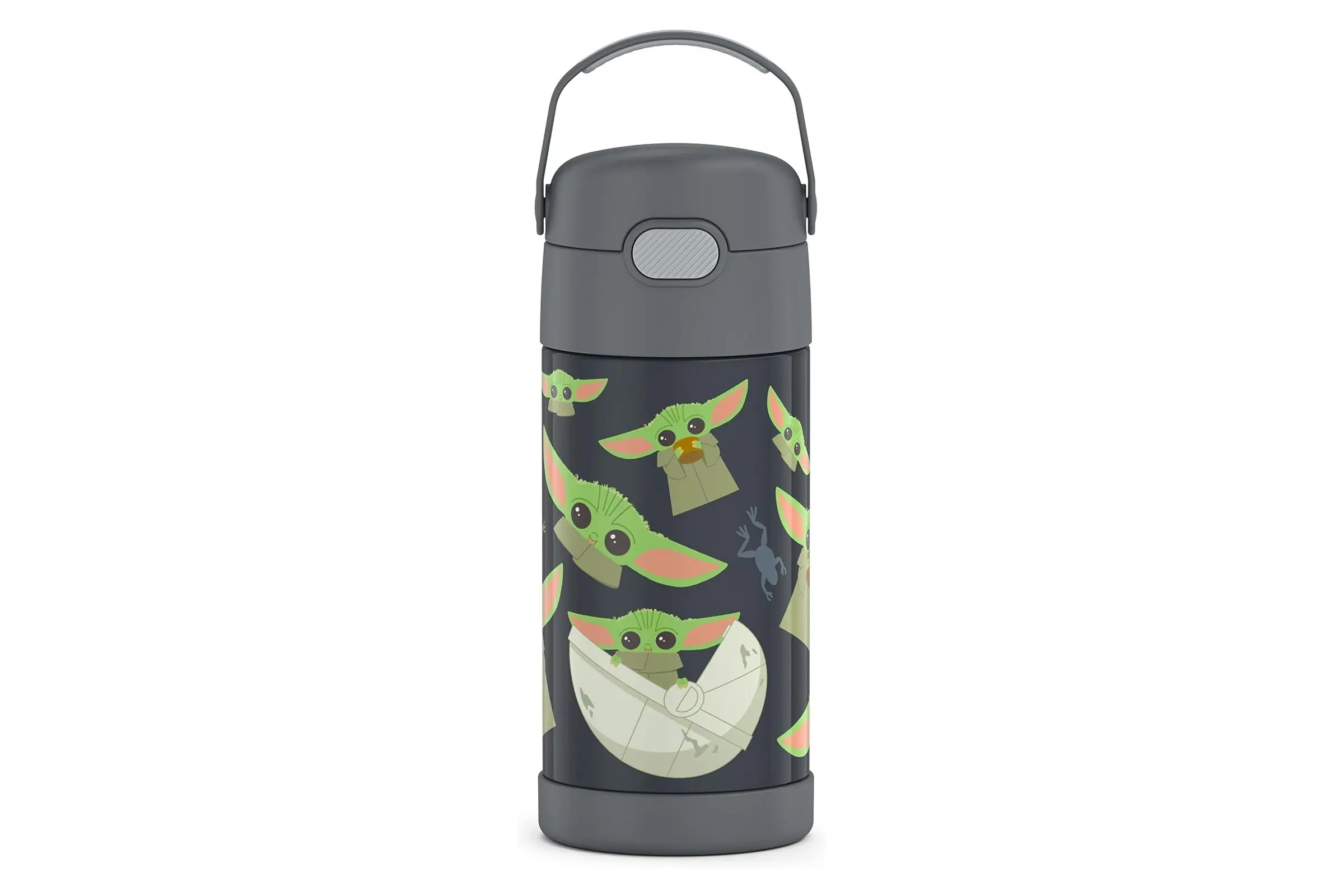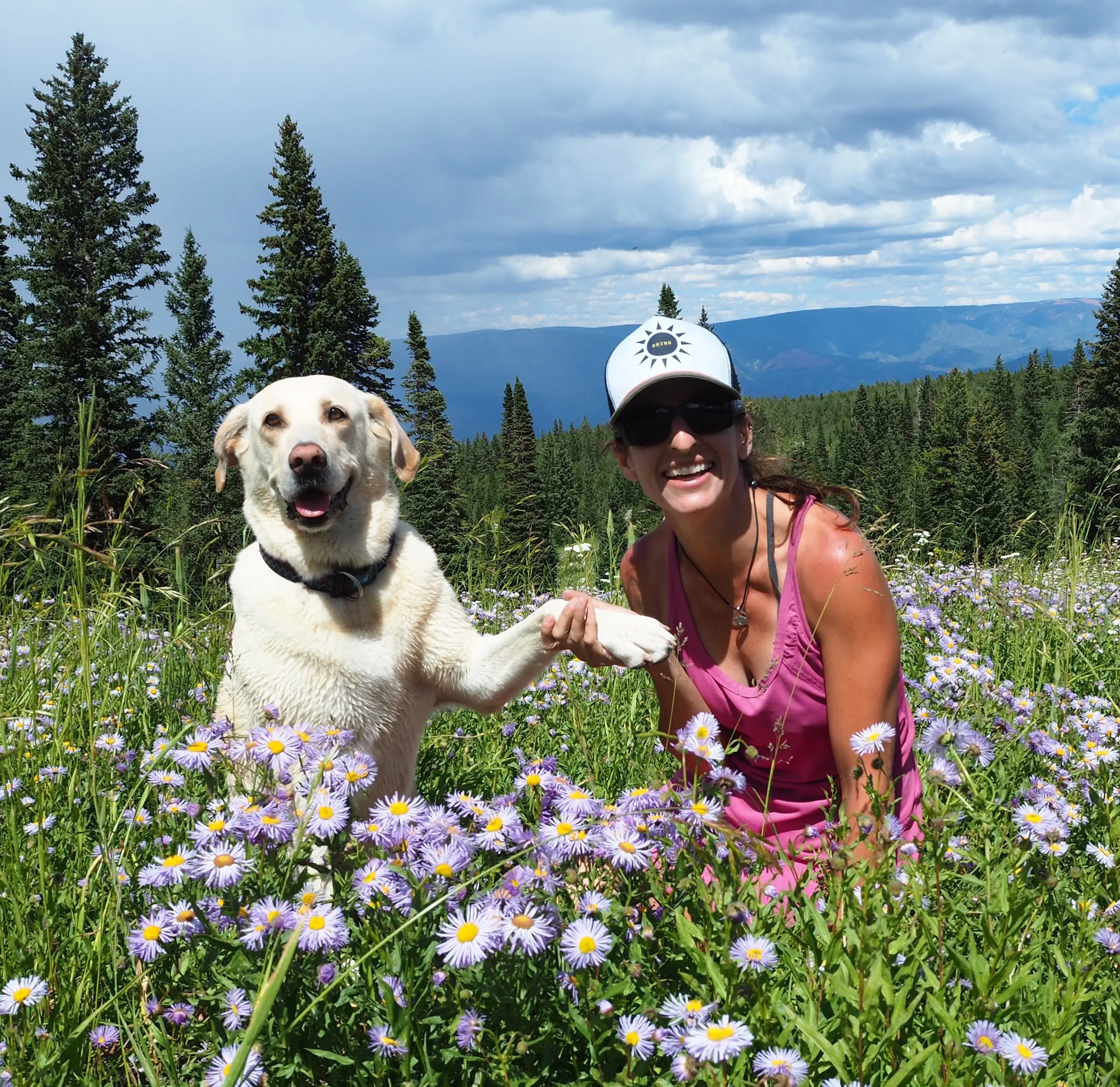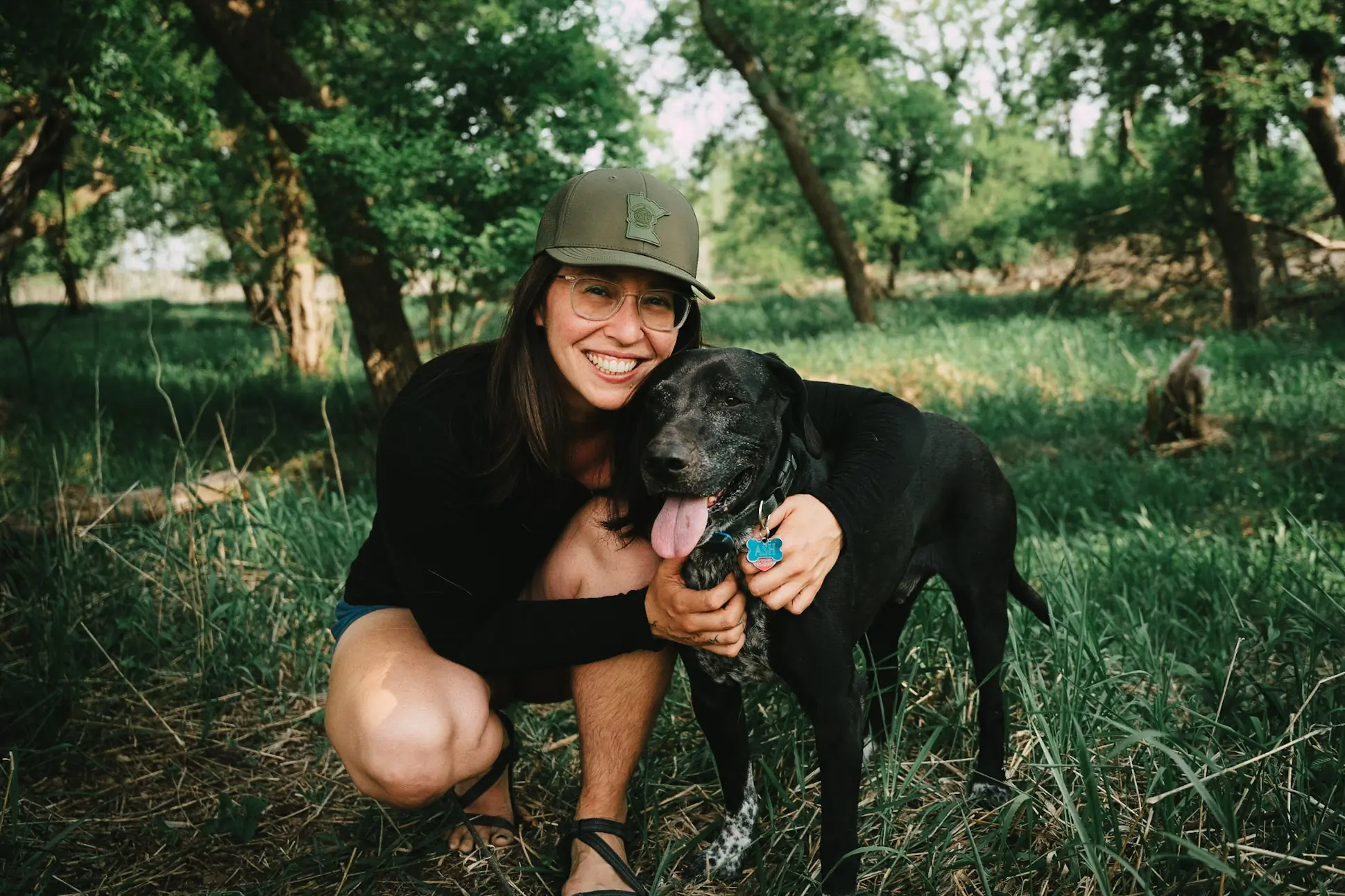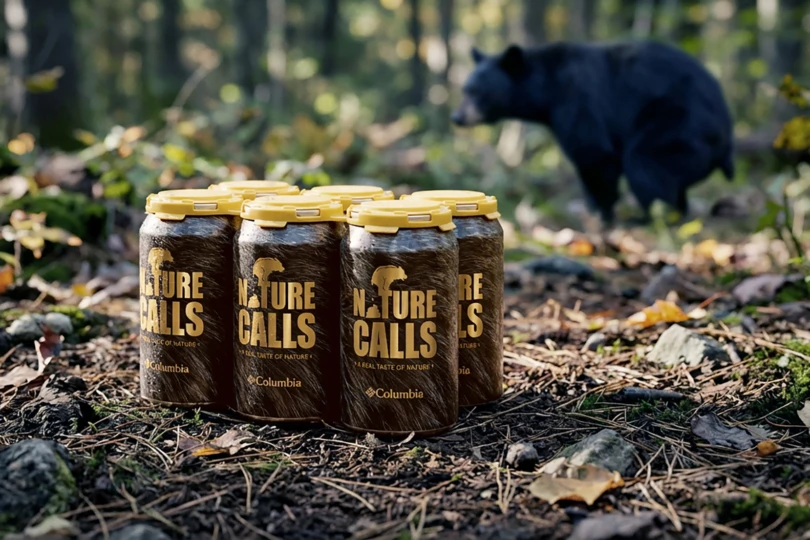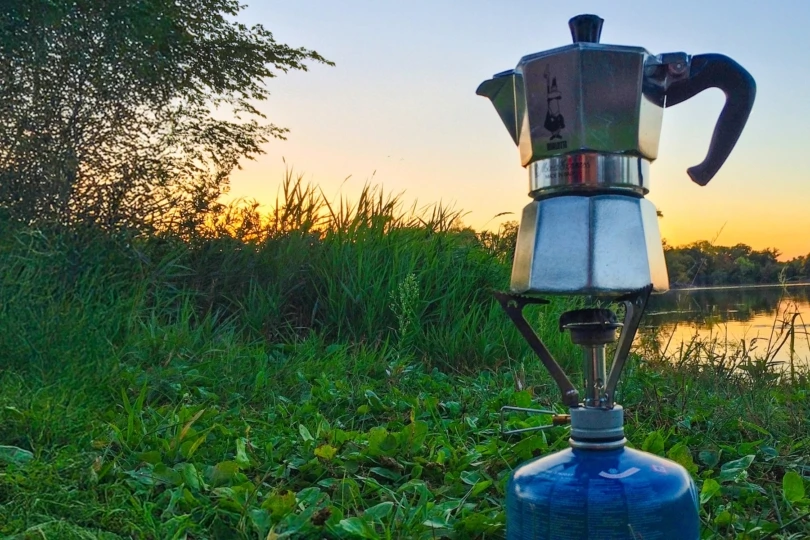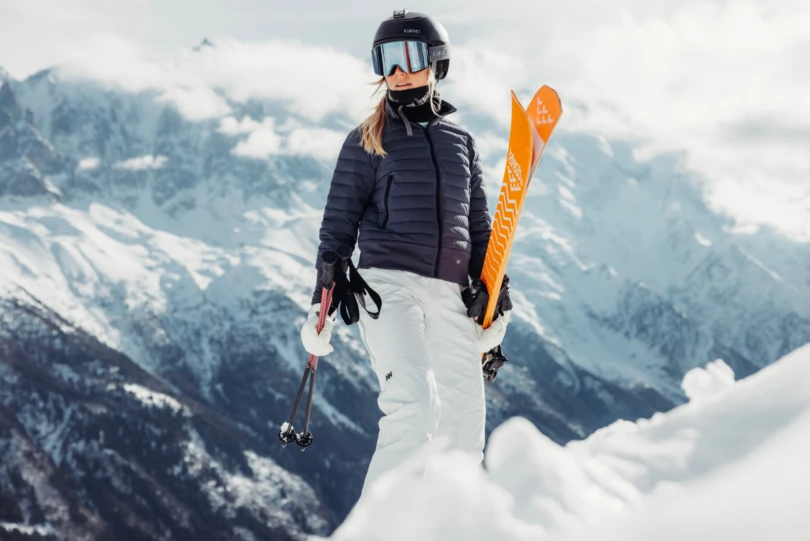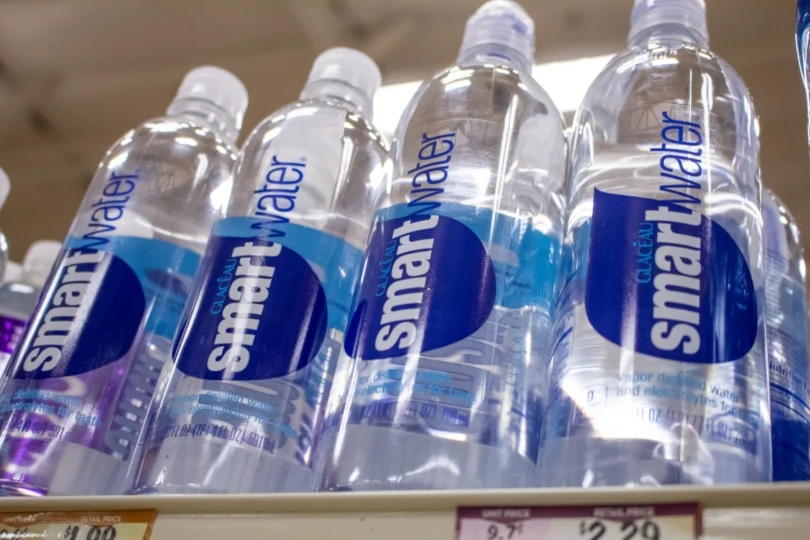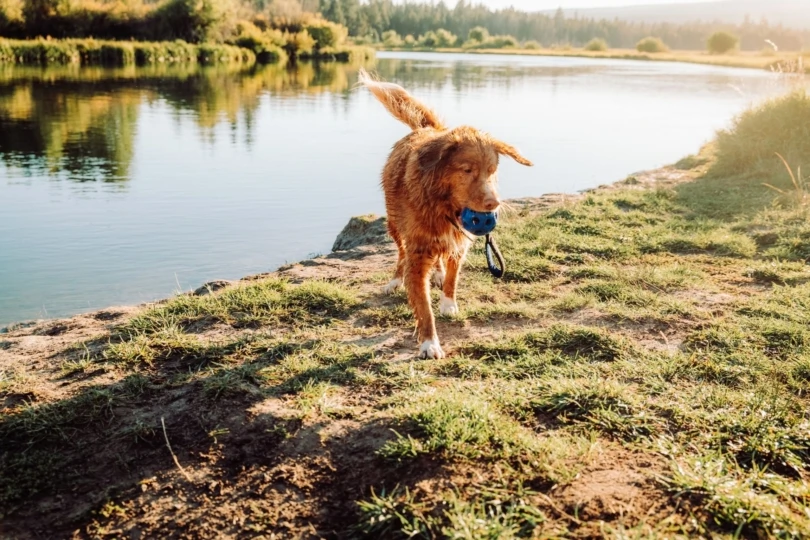Nothing ruins a hot day or cold morning faster than a lukewarm drink. That first gulp of ice water on a blazing trail or steaming coffee at dawn is pure magic, and the best insulated water bottles keep your beverage of choice at just the right temperature for hours. These bottles are also durable companions built to replace disposables and hold up through years of use.
Since 2021, we’ve tested more than 40 insulated bottles, subjecting them to ice-retention trials, leak tests, and even taste tests. Our top pick, the Hydro Flask Wide Mouth Bottle, excels at keeping beverages cold and hot for longer. For value seekers, the RTIC Vacuum Insulated Bottle proves impressively durable without the high price.
From adventure-ready giants to everyday commuters and lightweight sports bottles, we’ve narrowed the field to the best insulated water bottles you can buy.
Editor’s Note: We updated our Insulated Water Bottles Guide on October 31, 2025, to add the Hydro Flask 32 oz Wide Mouth Travel Bottle, a versatile pick that offers two drinking options with both Flex Straw and Chug Caps. We also added detailed ratings to give clearer insight into how each bottle performed in our testing.
The Best Insulated Water Bottles of 2026
Hydro Flask Wide Mouth Bottle
-
Value
8.0
-
Temperature Retention
9.6
-
Taste
9.2
-
Durability
8.5
- Material: Stainless steel
- Insulation type: Double-wall vacuum
- BPA-free: Yes
- Weight: 1 lb., 2 oz. in 40 fl. oz. size
- Available volumes: 20, 24, 32, 40 and 64 fl. oz.
Pros
- Long-standing cold and heat retention
- Slim profile fits into many pockets and cupholders
- Wide mouth accommodates ice cubes
Cons
- Not impervious to dents
RTIC Vacuum Insulated Bottle
-
Value
9.0
-
Temperature Retention
8.5
-
Taste
8.3
-
Durability
6.5
- Material: Stainless steel
- Insulation type: Double-wall vacuum
- BPA-free: Yes
- Weight: 15.0 oz. in 32 fl. oz. size
- Available volumes: 32, 36, and 40 fl. oz.
Pros
- Affordable Price
- Good heat and cold retention
- Flip-up lid allows drinking without removing the whole lid
- Available in over a dozen colors
Cons
- Not as heavy-duty as some other models
Stanley Quencher H2.0 Flowstate Tumbler
-
Value
7.6
-
Temperature Retention
8.8
-
Taste
8.5
-
Durability
8.9
- Material: Stainless steel
- Insulation type: Double-wall vacuum
- BPA-free: Yes
- Weight: 1.4 lbs in 40 fl. oz. size
- Available volumes: 14, 20, 30, 40, and 64 fl. oz.
Pros
- Car cup holder compatible even in larger sizes
- 3-position lid including reusable straw
- Large handle improves grip
Cons
- Lid is not leak-proof
- 40 fl. oz. size is quite heavy
YETI Rambler Chug Water Bottle
-
Value
8.1
-
Temperature Retention
9.4
-
Taste
9.1
-
Durability
8.7
- Material: Stainless steel
- Insulation type: Double-wall vacuum
- BPA-free: Yes
- Weight: 1 lb., 3.2 oz. in the 18 fl. oz. size
- Available volumes: 18, 26, 36, 46, 64 fl. oz.
Pros
- Retains temperature very well
- Fits in most cup holders
- Available in a wide variety of colors, sizes, and lid types
Cons
- Standard issue Chug cap isn’t for everyone
Bivo Trio Insulated Water Bottle
-
Value
8.0
-
Temperature Retention
8.0
-
Taste
9.4
-
Durability
9.1
- Material: Recycled stainless steel/LFGB-compliant silicone/ BPA/S/F-free polypropylene
- Insulation type: Double-wall vacuum
- BPA-free: Yes
- Weight: 9.4 oz.
- Available volumes: 17 & 21 fl. oz.
Pros
- Easy one-handed on-the-go hydration
- Keeps water super cold & delicious all-day
- Leak proof & grippy
- 100 % recyclable
- Lightweight
- Quiet, great fit in most bike cages
Cons
- Cap requires separate purchase
- Shows scratches and dings
LifeStraw Go
-
Value
7.2
-
Temperature Retention
8.0
-
Taste
8.9
-
Durability
8.9
- Material: Stainless steel bottle, BPA-Free membrane microfilter, activated carbon filter
- Insulation type: Double-wall vacuum
- BPA-free: Yes
- Weight: 16.5 oz. in the 18 fl. oz.
- Available volumes: 18 fl. oz., 24 fl. oz., 1
Pros
- Filter has a built-in flow indicator
- Membrane Microfilter has a lengthy lifespan for the size
- Dual filters are replaceable
- Stainless steel design is durable and easy to clean
Cons
- Frequent carbon filter replacements
- Filter can not remove chemicals from water
More Insulated Water Bottles to Quench Your Thirst
With tons of insulated water bottles available, we think the award winners above are just a bit better than the rest. However, we trust many others to keep us hydrated and happy. Check out the insulated water bottles below before making your choice.
-
Value
7.5
-
Temperature Retention
8.6
-
Taste
8.3
-
Durability
8.8
- Material: Stainless steel
- Insulation type: Double-wall vacuum
- BPA-free: Yes
- Weight: 1.03 lbs. in 32 fl. oz. size
- Available volumes: 24, 32, 40
Pros
- Excellent insulation
- Works with both straw and chug caps for flexibility
- Durable and well-built
- Easy to clean and add ice
Cons
- Heavy when full
- Too wide for some cup holders
-
Value
6.7
-
Temperature Retention
7.8
-
Taste
7.4
-
Durability
7.9
- Material: Stainless Steel
- Insulation type: Double-wall vacuum
- BPA-free: Yes
- Weight: 6.14 oz
- Available volumes: 25 fl. oz
Pros
- Actually leak and spill proof
- Dishwasher safe for easy cleaning
- Compatible with other CamelBak products
Cons
- Can be difficult to get valve clean
- Straw takes some force to suck water through
- No real stand out features to justify the price
-
Value
7.6
-
Temperature Retention
6.5
-
Taste
7.0
-
Durability
7.3
- Material: Stainless steel
- Insulation type: Double-wall vacuum
- BPA-free: Yes
- Weight: 15.2 oz. in 32 fl. oz. size
- Available volumes: 19, 22, 32, 40 fl. oz.
Pros
- Well constructed flip top lid
- FreeSip spout for sipping or gulping
- Tough powdercoating
Cons
- Handle doesn't lock out
- Not for use with hot liquids
-
Value
8.8
-
Temperature Retention
7.5
-
Taste
7.5
-
Durability
8.0
- Material: Stainless steel
- Insulation type: Double-wall vacuum
- BPA-free: Yes
- Weight: 16 oz. in 22 fl. oz. size
- Available volumes: 17, 22 fl. oz.
Pros
- One of the better straw-drinking lids
- Bottle shape fits well in your hand
Cons
- Only smaller volumes are available
- Can be difficult to clean
-
Value
7.0
-
Temperature Retention
9.0
-
Taste
8.2
-
Durability
8.3
- Material: Stainless steel
- Insulation type: Double-wall vacuum
- BPA-free: Yes
- Weight: 12.6 oz. in 32 fl. oz. size
- Available volumes: 21, 24, 32 fl. oz.
Pros
- Lightweight construction
- Same Hydro Flask build quality
Cons
- Higher price
- Temperature retention somewhat compromised by low weight
-
Value
6.9
-
Temperature Retention
8.5
-
Taste
7.7
-
Durability
7.8
- Material: Stainless steel
- Insulation type: Double-wall vacuum
- BPA-free: Yes
- Weight: 1 lb., 4 oz. in 32 fl. oz. size
- Available volumes: 12, 16, 20, 32, 64 fl. oz.
Pros
- Fully insulated cap increases temperature retention
- Stainless steel cap bottom means there’s a full steel interior
Cons
- Lid can be a bit hard to grasp
-
Value
6.5
-
Temperature Retention
8.0
-
Taste
9.0
-
Durability
6.8
- Material: Stainless steel & glass
- Insulation type: Double-wall vacuum
- BPA-free: Yes
- Weight: 12.2 oz. in 18 fl. oz. size
- Available volumes: 18, 32 fl. oz.
Pros
- Glass lining eliminates any metallic taste from water
- Sleek fit and look
Cons
- Painted finish scratches easily
-
Value
8.5
-
Temperature Retention
7.5
-
Taste
7.9
-
Durability
6.8
- Material: Plastic Polypropylene
- Insulation type: Double-wall
- BPA-free: Yes
- Weight: 4.3 oz.
- Available volumes: 24 fl. oz.
Pros
- Leakproof design is effective
- Option to lock the lid
- Taste-free bottle
- Fits in versatile cycling setups
- Affordable price
Cons
- Insulating is just okay and doesn’t last long in summer
- Cap is hard to clean
- Internal cap plug can easily be lost
-
Value
7.5
-
Temperature Retention
8.5
-
Taste
8.0
-
Durability
7.5
- Material: Stainless steel
- Insulation type: Double-wall vacuum
- BPA-free: Yes
- Weight: 1 lb., 13 oz. in 64 fl. oz. size
- Available volumes: 64 fl. oz.
Pros
- Handles carbonated beverages easily, no leaks here
- Lid and pour handle make for easy distribution
Cons
- Rubber seal can retain scents
-
Value
6.5
-
Temperature Retention
7.0
-
Taste
7.5
-
Durability
7.3
- Material: Stainless steel
- Insulation type: Double-wall vacuum
- BPA-free: Yes
- Weight: 4 oz. in 12 fl. oz. size
- Available volumes: 12, 16 fl. oz.
Pros
- Perfect size for lunch boxes and backpacks
- Built-in straw is easy to manage for kids
Cons
- Can leak from air hole if not closed properly
Insulated Water Bottle Comparison Chart
| Insulated Water Bottle | Price | Material | Insulation Type | Weight | Available Volumes |
|---|---|---|---|---|---|
| Hydro Flask Wide Mouth Bottle | $50 | Stainless steel | Double-wall vacuum | 18.0 oz. in 40 fl. oz. size | 20, 24, 32, 40m 64 fl. oz. |
| RTIC Vacuum Insulated Bottle | $20 | Stainless steel | Double-wall vacuum | 15.0 oz. in 32 fl. oz. size | 32, 36, 40 fl. oz. |
| Stanley Quencher H2.0 Flowstate Tumbler | $45 | Stainless steel | Double-wall vacuum | 22.4 oz. in 40 fl. oz. size | 14, 20, 30, 40, 64 fl. oz. |
| YETI Rambler Chug Water Bottle | $40 | Stainless steel | Double-wall vacuum | 19.2 oz. in 18 fl. oz. size | 18, 26, 36, 46, 64 fl. oz. |
| Bivo Trio Insulated Water Bottle | $49 | Recycled stainless steel/LFGB-compliant silicone/ BPA/S/F-free polypropylene | Double-wall vacuum | 9.4 oz. in 21 fl. oz. size | 17 & 21 fl. oz. |
| LifeStraw Go | $60 | Stainless steel bottle, BPA-Free membrane microfilter, activated carbon filter | Double-wall vacuum | 16.5 oz. in the 18 fl. oz. | 18 fl. oz., 24 fl. oz. |
| Hydro Flask Wide Mouth Travel Bottle | $45 | Stainless steel | Double-wall vacuum | 1.03 lbs. in 32 fl. oz. size | 24, 32, 40 |
| CamelBak Eddy+ Water Bottle | $33 | Stainless Steel | Double-wall vacuum | 6.14 oz | 25 fl. oz |
| Owala FreeSip Vacuum Water Bottle | $30 | Stainless steel | Double-wall vacuum | 15.2 oz. in 32 fl. oz. size | 19, 22, 32, 40 fl. oz. |
| Stanley IceFlow Flip Straw Water Bottle | $32 | Stainless steel | Double-wall vacuum | 16 oz. in 22 fl. oz. size | 17, 22 fl. oz. |
| Hydro Flask Lightweight Wide Mouth | $50 | Stainless steel | Double-wall vacuum | 12.6 oz. in 32 fl. oz. size | 21, 24, 32 fl. oz. |
| Klean Kanteen Insulated TKWide With Twist Cap | $47 | Stainless steel | Double-wall vacuum | 1 lb., 4 oz. in 32 fl. oz. size | 12, 16, 20, 32, 64 fl. oz. |
| Purist Mover Bottle | $48 | Stainless steel & glass | Double-wall vacuum | 12.2 oz. in 18 fl. oz. size | 18, 32 fl. oz. |
| CamelBak Podium Big Chill | $20 | Plastic Polypropylene | Double-wall | 4.3 oz. | 21 & 24 fl. oz. |
| MiiR Growler | $60 | Stainless steel | Double-wall vacuum | 29.0 oz. in 64 fl. oz. size | 64 fl. oz. |
| Thermos Funtainer Bottle With Straw | $20 | Stainless steel | Double-wall vacuum | 4.0 oz. in 12 fl. oz. size | 12, 16 fl. oz. |

How We Tested the Best Insulated Water Bottles
Our Expert Testers
Long a holdout to the niceties of an insulated bottle, GearJunkie Senior Editor Nick Belcaster finally came around to the wonders of insulated water bottles after being gifted a Hydro Flask. It turns out that having ice-cold water hours after leaving the house is worth it.
When you work and play in extreme environments, the benefits of keeping hot water hot and cold water cold start to click. Contributor Katie Griffith originally sought an insulated bottle so she could sip on a liter of hot chocolate during an ice climbing trip. Now, she packs her Hydro Flask every day for work as a rock climbing guide in Joshua Tree. She especially savors each gulp of cold water in the desert heat. Recently, Meg Carney and editor Chris Kassar, both gear gurus, bikers, hikers, and all-around outdoor lovers, took over this guide by adding a few new products and fine-tuning the overall selection.
Many in the GearJunkie offices enjoy bringing an insulated bottle to work. So, we tapped into this collective knowledge to assemble our list of bottles. We then put them through the wringer and pulled together the best of the best insulated bottles you see here.
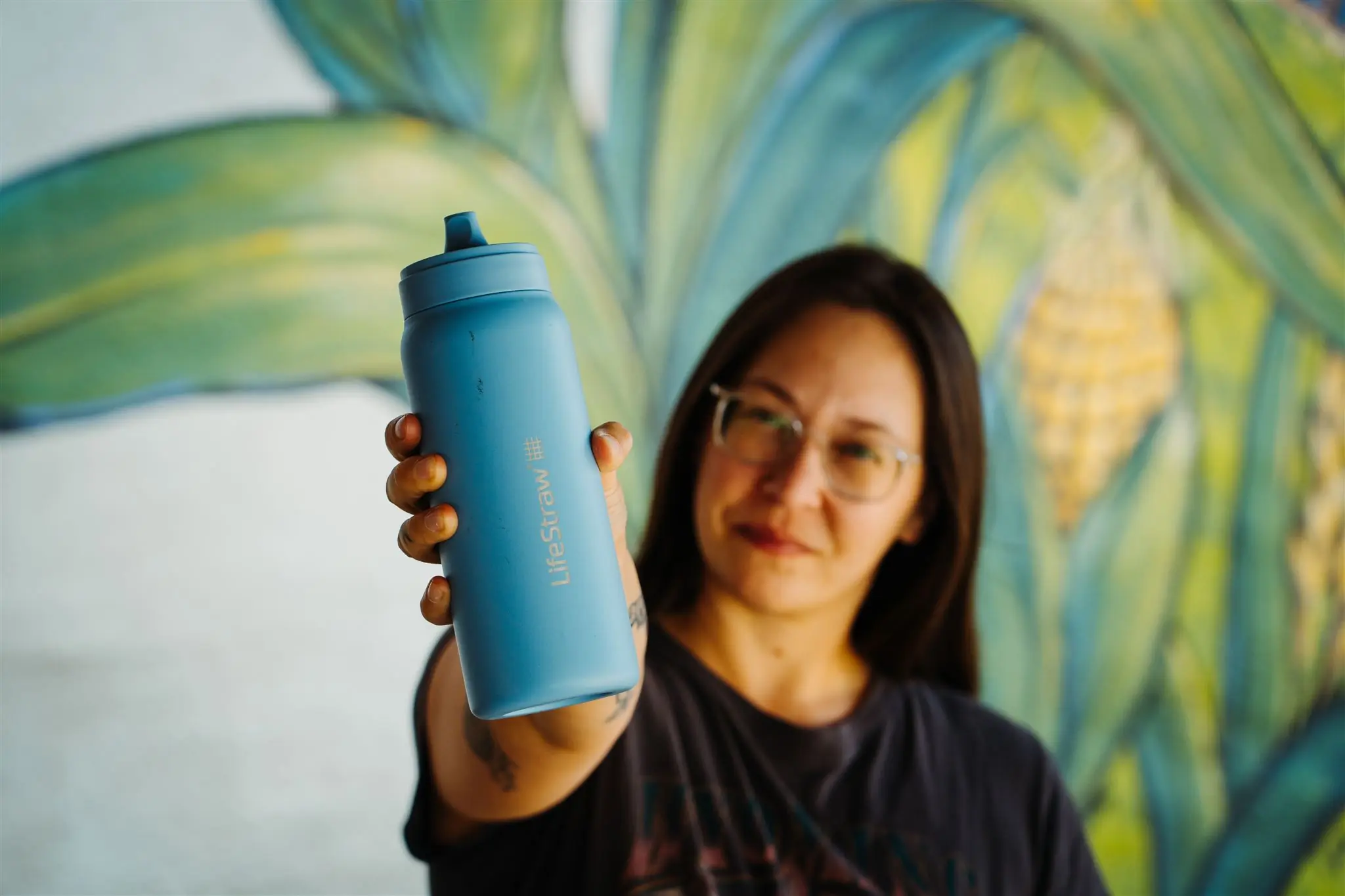
Our Testing Process
We started our foray into the world of insulated water bottles in 2021, aiming to cut through the noise and distill down a huge market into a handful of the best insulated water bottles available. To test our slate of insulated bottles, we subjected them to common-place use, such as hot-day hikes, bike commuting, or airline travel. We paid close attention to how long each bottle held onto chilled water and to important issues such as leaking or denting.
In 2023, we expanded our horizons when Nick looked afar for the best bottles for more special circumstances and tested models to include the best options for insulated growlers, can coolers, and self-cleaning water bottles.
At the end of 2023, we tweaked our choices again, pivoting some of our award winners to newly updated standard bearers, and added significantly to our Buyer’s Guide to really dig deep into subjects such as volume, materials, and styles.
In 2024, we added a few additional products to the mix, including popular models from CamelBak, LifeStraw, and Stanley, to bring you the best 14 bottles around. It’s worth noting that this article specifically covers the best insulated water bottles. We also have a separate gear guide for the best thermoses for when the temperatures dip, and a hot drink is needed. You may also want to read up on the best backpacking water filters.


Our Insulated Water Bottles Rating System
Each bottle was tested and scored in four main categories: value, temperature retention, taste, and durability. Value reflects how well the bottle performs for its price. Temperature retention measures how long a bottle can realistically keep drinks hot or cold. Taste considers whether water or coffee comes through clean or if there are lingering metallic or plastic flavors. Durability accounts for how well the bottle holds up over time, including resistance to dents, scratches, leaks, and general wear from daily use.
The overall score is not a simple average of those numbers. Instead, it represents our editorial judgment of the full user experience. We considered durability, lid design, leak resistance, portability, ease of cleaning, and how well each bottle fits its intended use. This means a bottle with a lower value score might still earn a high overall rating if it excels in everyday usability, while a budget pick that scores well on value may drop lower overall if it falls short on performance or design.
For example, the Hydro Flask Wide Mouth earned the highest overall rating because it consistently delivers top-tier insulation, durability, a clean taste, and user-friendly design. The RTIC Vacuum Insulated scored higher on value but landed lower overall because it doesn’t quite match Hydro Flask’s refinement. On the other end of the spectrum, bottles like the Thermos Funtainer are affordable and functional but scored lower overall because their insulation and durability limit broader use.
Buyer’s Guide: How to Choose an Insulated Water Bottle
Style of Insulated Bottle
Insulated bottles come in many shapes and sizes. Some closely resemble other plastic sports bottles like the Bivo Trio Insulated Water Bottle and CamelBak Podium Big Chill with spill-proof, screw-top lids. The best overall bottle, Hydro Flask’s Wide Mouth, falls into this category. These are often the most versatile options and may replace your Nalgene when weight isn’t a big factor.
Beyond the standard water bottle, this list also includes tumblers, can coolers, and growlers. A tumbler more closely resembles a cup with a lid than a water bottle. The Stanley Quencher H2.0 Flowstate Tumbler is great for all-day hydration, but the lid is not spill-proof. You can’t pack it in a backpack like other water bottles.
Other styles are even more specialized, like the MiiR Growler. This insulated container is designed specifically for storing carbonated beverages like beer or kombucha. The lid functions to seal in carbonation and freshness; you wouldn’t need this for your daily beverages.
Volume


Pick a water bottle with enough volume for all your activities. If you really love one particular insulated bottle, consider getting two sizes — one for daily use and one with more volume for longer trips or travel. (Also consider if the bottle you’ve chosen will work with a water filter or in your pack pocket if you know you’ll be taking it with you on the trail.)
Or, get one with a built-in water filter like the LifeStraw Go and you won’t have to worry about it. If you spend a lot of time driving, note that after a certain volume, fitting into most cup holders isn’t going to happen.
Most bottles we tested are available in volumes from around 12 to 64 ounces. A 12- or 16-ounce bottle is ideal for morning coffee or tea, while you’ll likely want a 24- or 32-ounce bottle like the CamelBak Podium Insulated Water Bottle to stay hydrated. For all-day, outdoor activities, bringing at least two liters of water is typically recommended, which would translate to about 64 ounces of capacity. We find that two 32-ounce bottles fit easier in a backpack than one 64-ounce vessel.
Make sure the bottle you choose lists how long it keeps water (or other liquids) cold. The standard is 24 hours, but we’ve noticed in many of these bottles the contents will stay colder for longer. You’ll want to know how good the insulation is, especially if you live in a hotter climate.
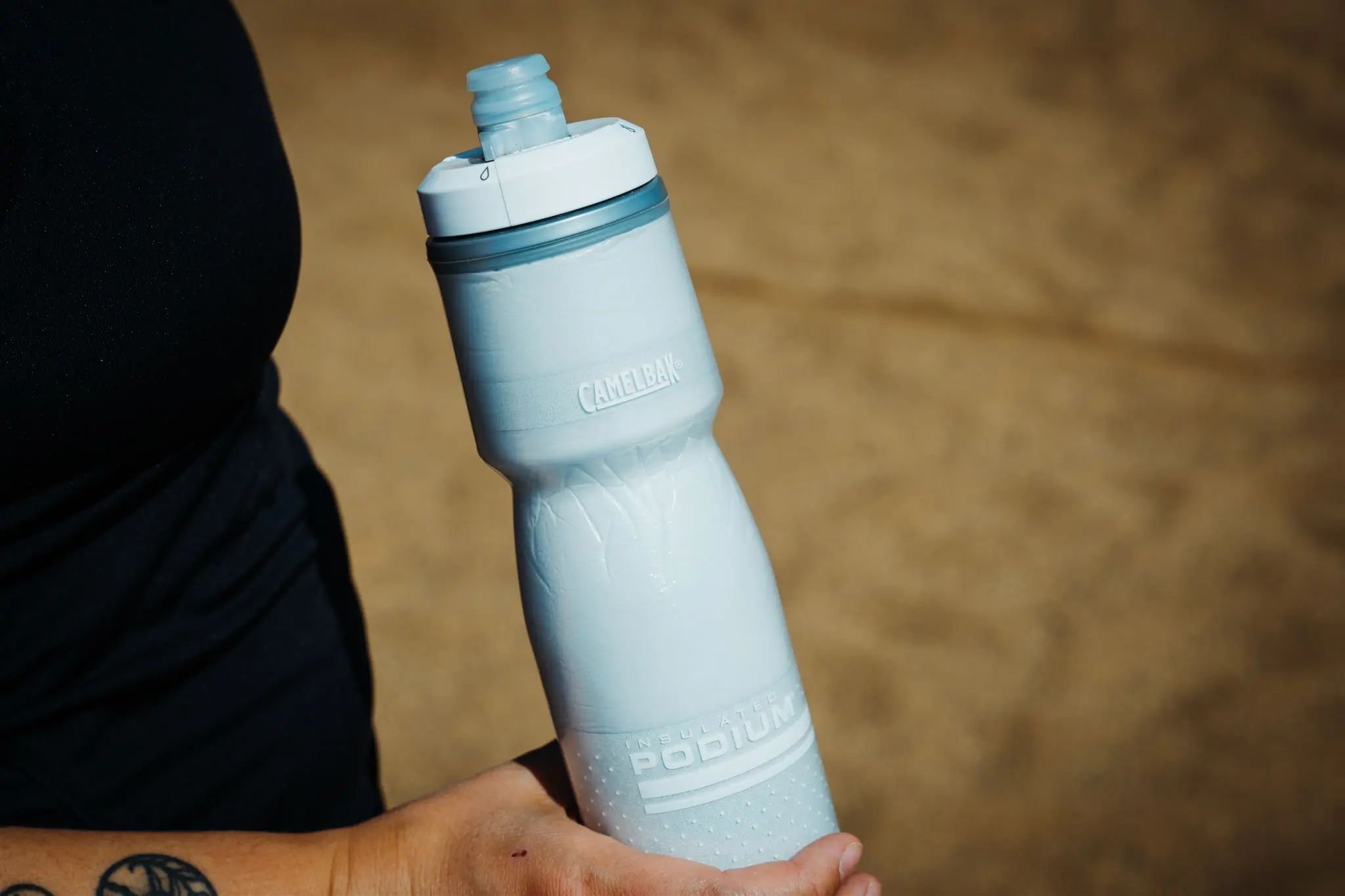



Materials
What are the interior and exterior materials? Most insulated bottles use some form of stainless steel double-wall insulation, but not all, like the triple-wall build of the Owala FreeSip. Also, look at the exterior material: Is there a powder coating? Does it reduce condensation? Is there a rubber grip or protective design on the base? Some like CamelBak Podium Insulated Water Bottle is made of plastic, which means they’re light, easy to drink from and can fit into bicycle cages, but they aren’t as durable or long-lasting.
Once you find a bottle that works for you, pick out a fun color while you’re at it! Colors are mainly just a preference but can also help identify your bottle in a crowd.
Temperature Retention


One of the most important aspects of an insulated bottle, temperature retention is how well it keeps the hot things hot and the cold things cold. The majority of insulated bottles will use some type of vacuum insulation to achieve this.
Heat energy needs mass to travel through, so by removing the air in between the two layers of the bottle, the liquid inside is able to retain its temperature for longer. We’ve found that most bottles are able to keep hot liquids hot for around 12 hours and cold liquids cold for about 24.
An insulated water bottle is basically a thermos with different design features. Most thermoses are also built with vacuum insulation, but they typically come with a lid designed for pouring hot liquid and a cap that doubles as a small cup for sipping tea or coffee.
Lids on thermoses can also be more effective at keeping liquids hot or cold. The lids on insulated water bottles focus on hydration, with straws like the Stanley Quencher H2.0 Flowstate Tumbler or open tops like the Hydro Flask Wide Mouth.
Don’t get us wrong; the insulated bottles we tested are still great at temperature retention. We filled the Stanley Quencher halfway with half-inch ice cubes and no water. After 24 hours in a 65-70 degree room, we found some water, but most of the ice cubes had shrunk only 50%.
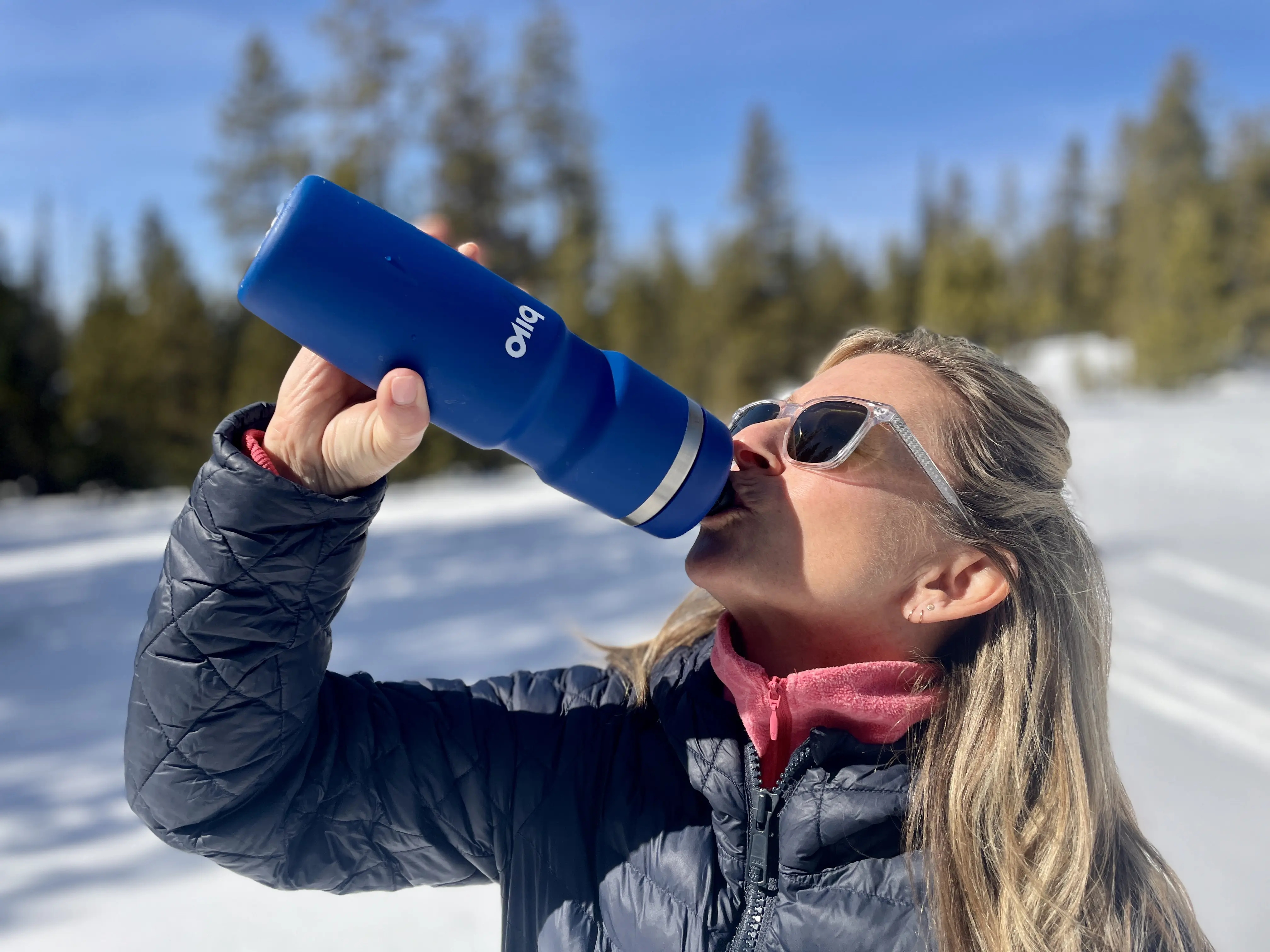



Taste
Metal bottles can sometimes impart a metallic taste to water, often after being left for a long period of time. Bottles like the Purist Mover and Bivo Trio Insulated Water Bottle implement a silicon dioxide coating on the interior of the bottom to create a glass-like barrier. This can greatly reduce the metal taste that is imparted to water.
Keeping insulated bottles clean is also important to limit any off-tastes. Pay attention to how easy the bottle might be to clean. Look at the threads on the lid as well as how easy it is to remove any gaskets for cleaning. Many bottles are marked as dishwasher safe on the top rack but not all.
A quick tip for cleaning your insulated bottle: Mix 2-3 tablespoons of baking soda and warm water and shake inside your bottle. Let sit for a few hours and then rinse out with water.
Lids & Handles


A bad lid can ruin an insulated bottle. Manufacturers understand consumers have many uses for their bottles and produce a number of different lids to fit them. The most basic will be a simple screw cap. But, there are also lids that incorporate straws, flip closures, and even magnets.
Lids will also have a good bit to do with the mouth style of the bottle. Narrow-mouth bottles can make sipping directly from the bottle nice and easy. But, a narrow mount will limit your ability to put ice into the bottle. Wide-mouth bottles can accept things like water filters with ease. But, without a steady hand, they can lead to some spillage.
Some lids are designed to be leak-proof when closed, and some are not. YETI’s 26-ounce Rambler Bottle, for example, features a secure lid that doesn’t allow spillage when screwed on correctly. The Stanley Quencher is not leak-proof and doesn’t claim to be. What it sacrifices in spillage, it makes up for in ease of sipping with the reusable straw. The rotating cover helps reduce leaking but doesn’t prevent it.
Our tester performed a leak test on the Quencher by adding food coloring to water inside the bottle, screwing it shut, turning it on its side, and timing both types of covers for ten seconds. The Quencher was nearly full during the test. With the rotating cover closed, a small blue puddle formed on a paper towel within a short time. With the straw still in place, a big puddle spilled over a paper towel almost immediately.
At their most basic, insulated bottles are sleek cylinders, which aren’t the most stable. Having a lid that you can clip a carabiner to can ensure it won’t make an escape. Others will sport a layer of silicone to improve grip or a contoured shape that fits your hand. We found the Stanley IceFlow Flip Straw Water Bottle to be one of the nicest to handle.


Price & Value
These bottles are an investment but totally worth it, especially if (like us) you spend lots of time outside. And before buying, always check to see if your favorite bottle is on sale.
Budget
You can find insulated bottles that won’t break the bank in the $15-25 range. The RTIC Vacuum Insulated Bottle ($20) and the CamelBak Podium Big Chill ($20) both fit this bill. These are both award winners in our review, so a lower price doesn’t necessarily mean lower quality. Both of these options perform well in terms of keeping beverages insulated and they are easy to drink out of. However, they aren’t as durable as others on the list, so they may not last as long.
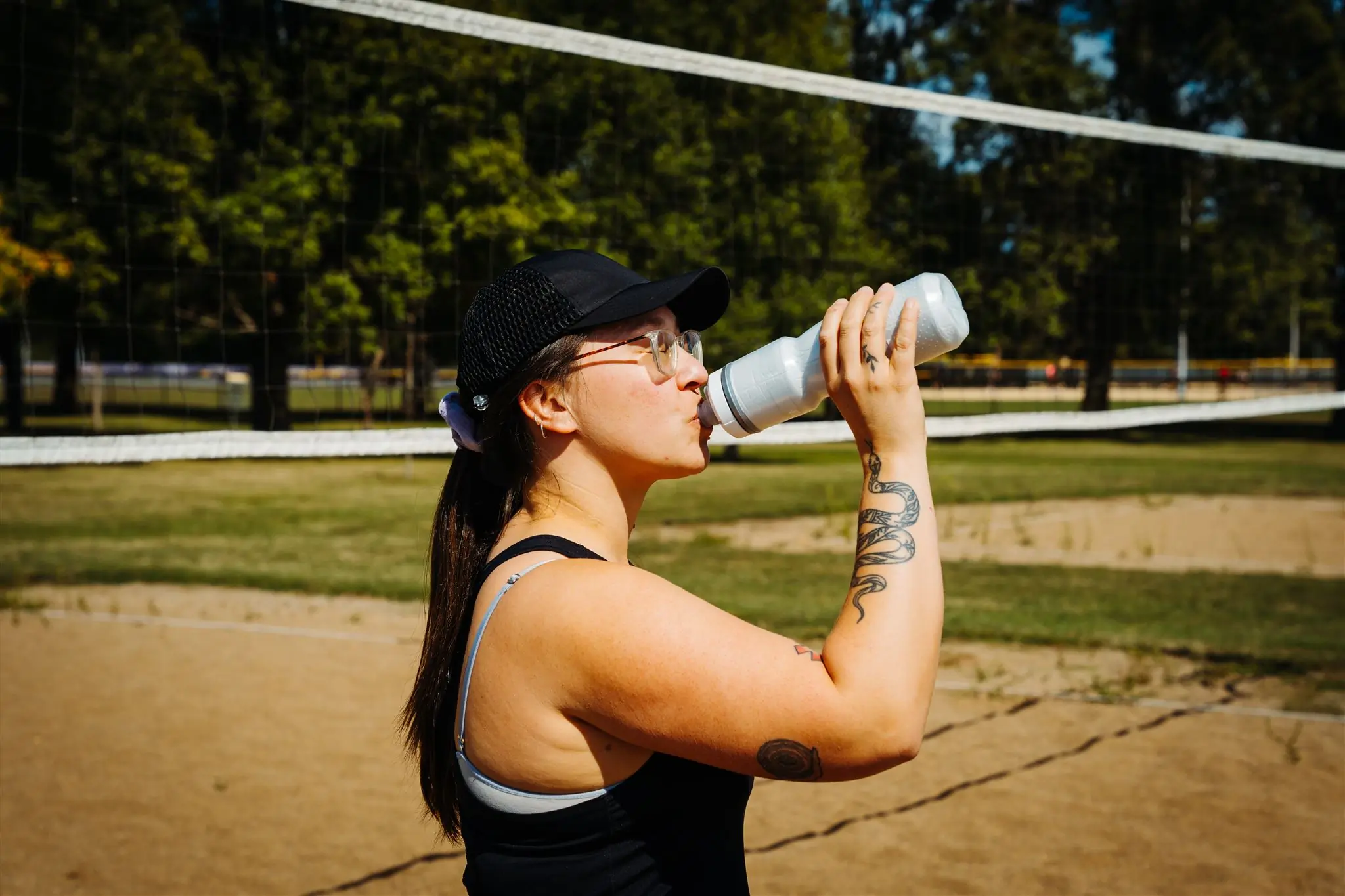



Mid-Tier
Some of our favorites are in the $30-45 range. This includes the Stanley Quencher H2.0 Flowstate Tumbler ($45) and the YETI Rambler Chug Water Bottle ($40). Though a little spendier, both of these come in larger volumes. They also feature a coating that improves durability and keep beverages cold (or hot) for an impressive amount of time.
Premium
The most specialized bottles, including the Bivo Trio Insulated Water Bottle ($49), Hydro Flask Wide Mouth ($50), MiiR Growler ($60), and Purist Mover Bottle ($48), often have the highest price tags. Sports technologies that go above and beyond daily hydration needs, like holding in carbonation, adding a taste-free liner, or being made from uber-thin materials to cut down weight, can all add to the price.
The Hydro Flask Wide Mouth is our top pick, and it is leakproof and retains heat and cold for much longer than most on this list. A bottle like the LifeStraw Go ($50) actually also acts as a filter so you can have clean water no matter where you are; it’s definitely worth a few extra bucks as far as we’re concerned.
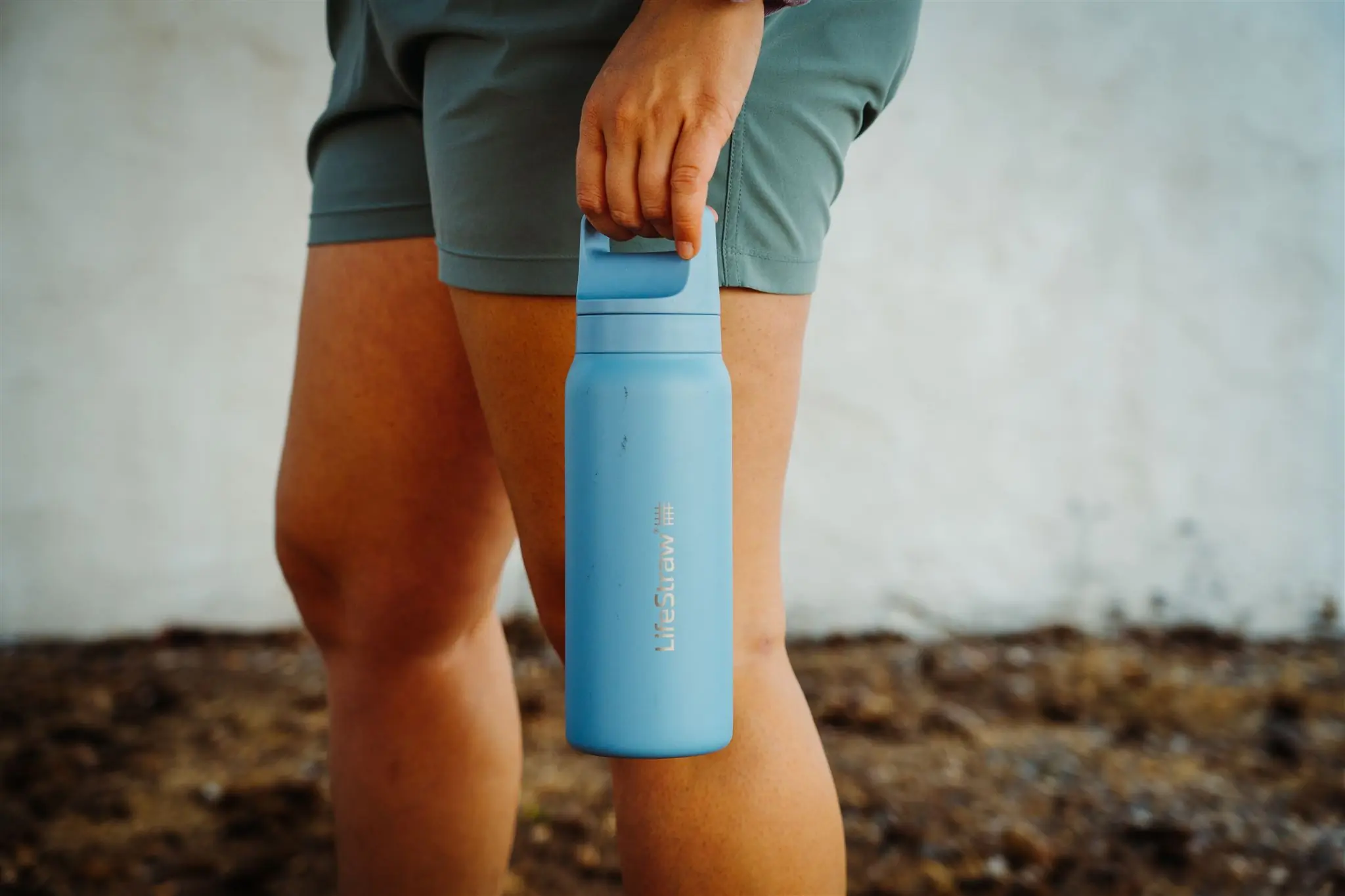



Frequently Asked Questions
On this list, we have selected the Hydro Flask Wide Mouth 40-ounce bottle as the best overall insulated water bottle. This option provides a useful blend of quality insulation and heavy-duty construction. We also like that it fits easily in most cup holders.
Still, the best-insulated water bottle is the one that meets your needs. If you are looking for a bottle with smaller volume, you may want to go with the 26-ounce YETI Rambler or 32-ounce Owala FreeSip.
All of the bottles on this list will do a great job at keeping your hot liquids hot and your cold liquids cold for impressively long periods. That said, the YETI Rambler Chug Water Bottle performs exceptionally well when filled with hot contents. It’s a lightweight bottle that keeps liquids piping hot and is thoroughly leakproof.
It is important to regularly clean reusable water bottles to prevent the growth of bacteria. Many insulated water bottles are dishwasher safe, and others can be easily cleaned with dish soap and hot water.
On this list, many of the bottles are made from easy-to-clean materials such as stainless steel and linings such as glass or copper. After cleaning, it is a good idea to take the cap off of your bottle and let it fully air dry.
Generally, it is safe to fill insulated water bottles with contents other than water. For coffee and tea, an insulated water bottle can allow you to enjoy a hot drink all through the morning.
However, it is especially important that you clean your bottle thoroughly after filling it with anything other than water. Because of the different shapes of insulated bottles, some are easier to clean than others.
For food like hot soup or oatmeal, you’re going to be better off with a food-specific thermos. These are similar to insulated water bottles, but their short and stout shape makes them easier to use and clean. A good thermos can keep hot food at a safe temperature for hours — an excellent counterpart to an insulated bottle!
Yes, many insulated water bottles are dishwasher-safe. Always double-check the manufacturer’s directions before washing your bottle. If your bottle is not dishwasher-safe, it can be cleaned with hot water, a little dish soap, and a thorough rinsing.
Always check to see what the manufacturer suggests. Many insulated water bottles can be washed in the dishwasher, which is an effective way to thoroughly remove any bacteria that may be present.
If washing by hand, scrub the inside and outside of the bottle with hot water and dish soap. Be sure to fully clean out the threads on both the cap and bottle. After cleaning, let all parts fully air dry.
Thanks to hardy stainless steel or ceramic construction, a good insulated water bottle should last many years — or potentially decades for the careful owner. We’ve all seen those old green Stanley bottles that are three decades old and still going strong.
The biggest threat to insulated water bottles is puncturing. If the double or triple-walled insulation of your bottle is punctured, it will lose its ability to insulate. To prevent this, avoid dropping your bottle onto jagged or hard surfaces. Plastic insulated water bottles are less prone to dents and punctures, but they are generally not as rugged overall.
If an insulated bottle becomes punctured, it will lose its vacuum and be replaced by air molecules. Since there is now matter in between the inner and outer bottles, heat transfer occurs much quicker.
To test if your bottle still has its vacuum sealing: Carefully fill the bottle with boiling water and wait five minutes. Then feel for any hot spots, which would indicate loss of insulation.
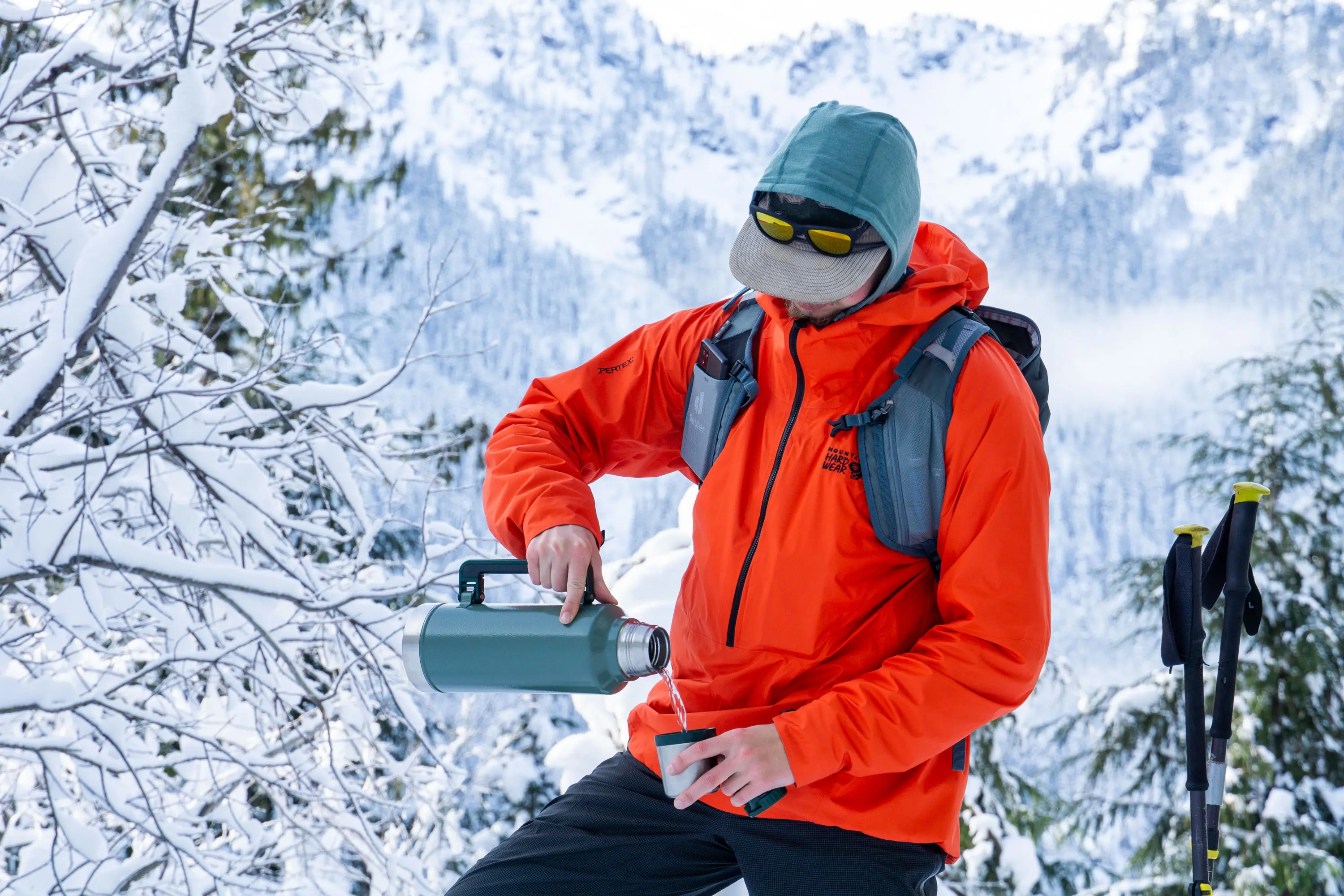

The Best Thermoses of 2026
If you want your favorite liquids to stay hot all day, check out our roundup of the best thermoses of 2026. Get ready to warm up with a hot drink.
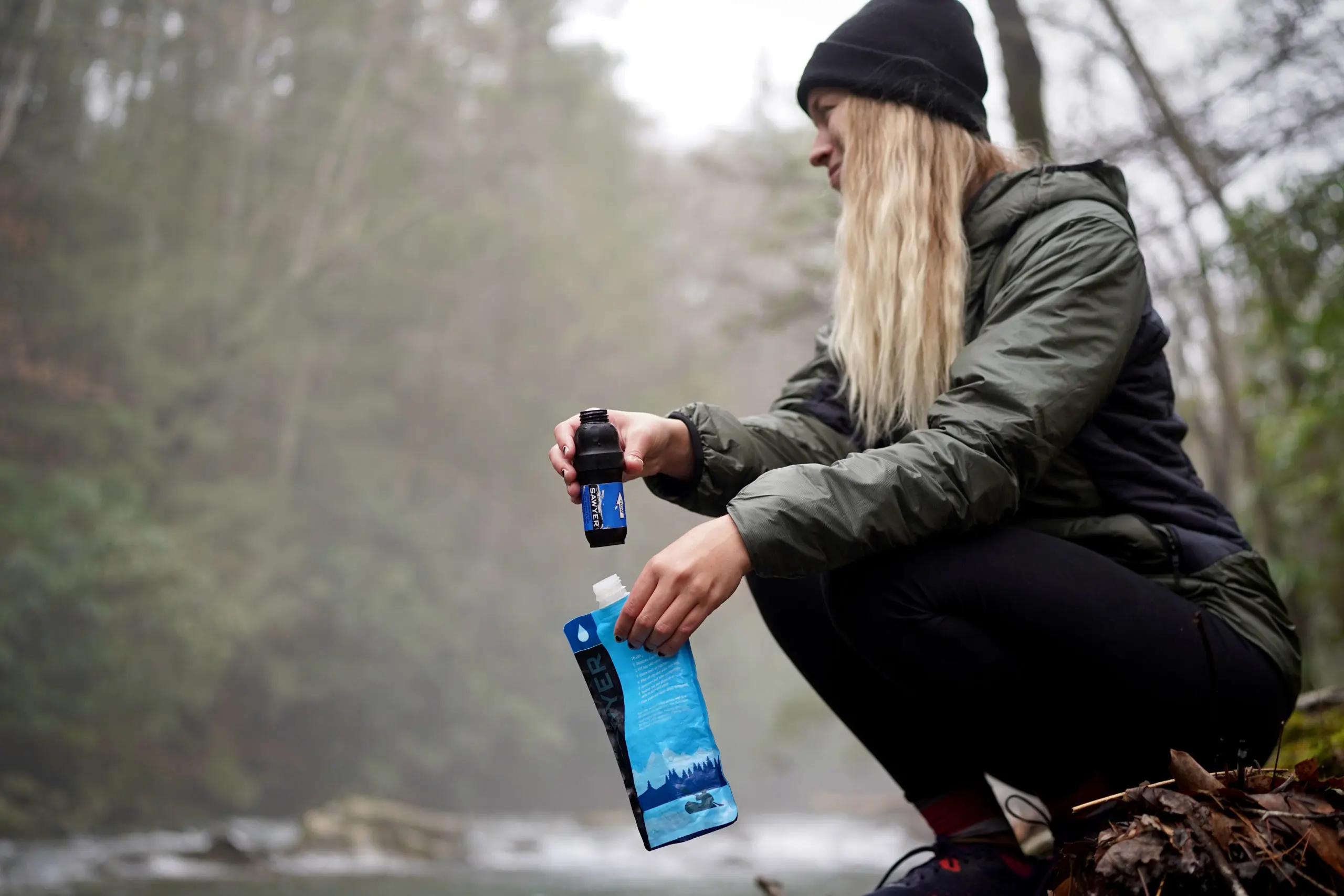

The Best Backpacking Water Filters of 2026
We tested the best backpacking water filters and purifiers for your next trip into the great outdoors.
